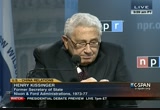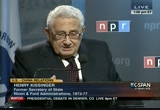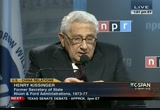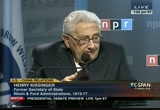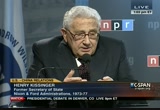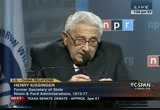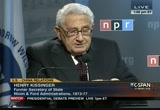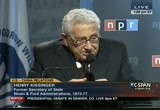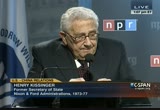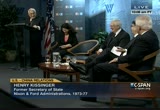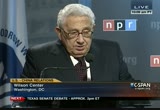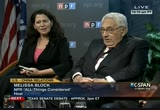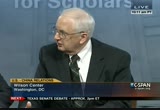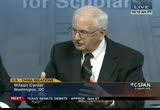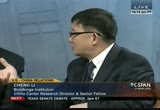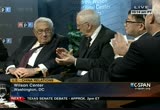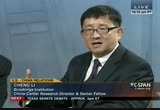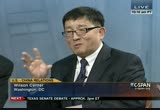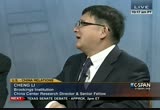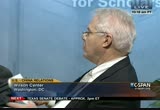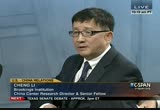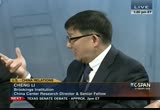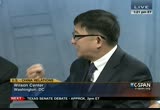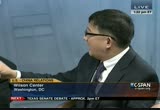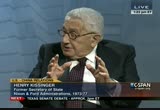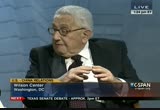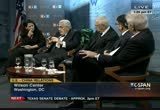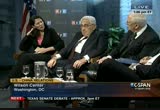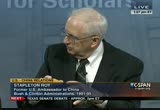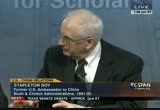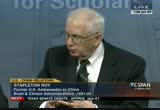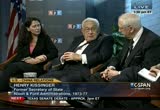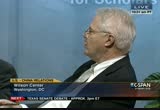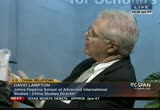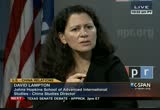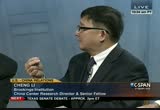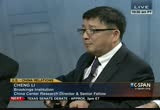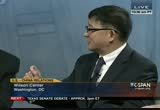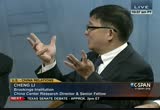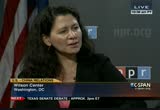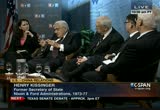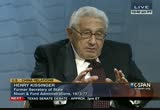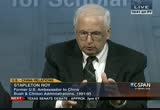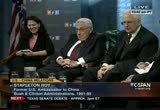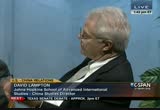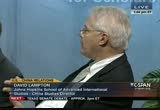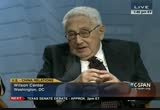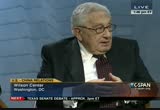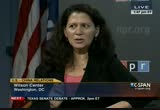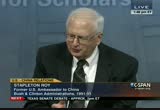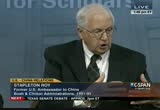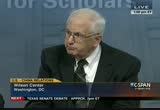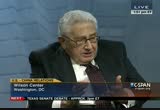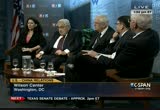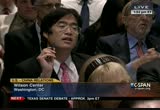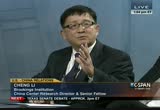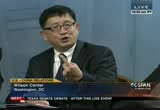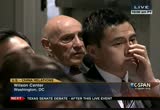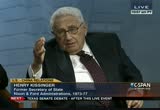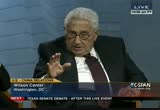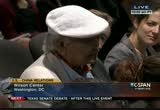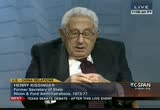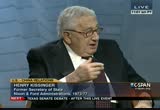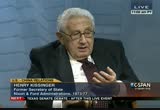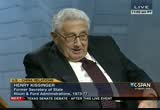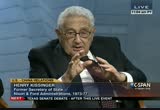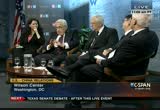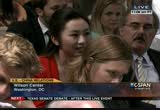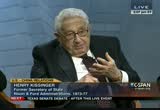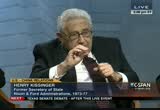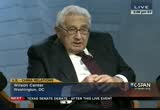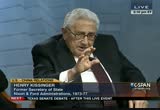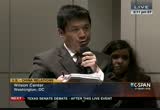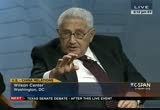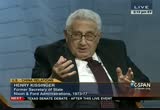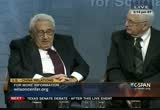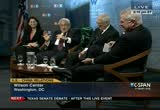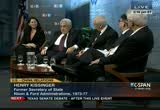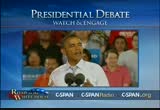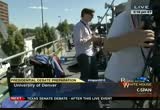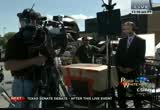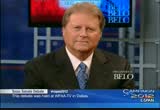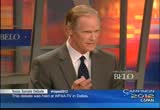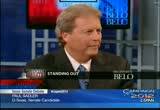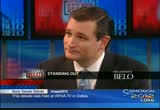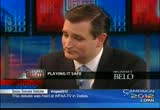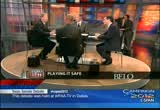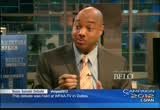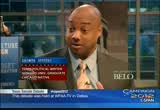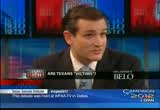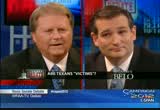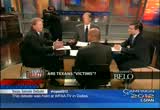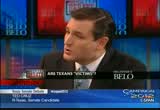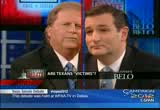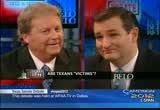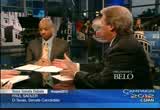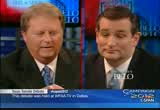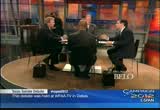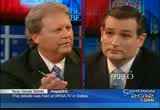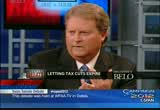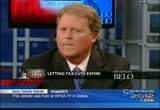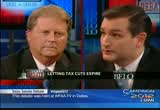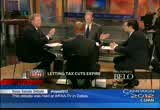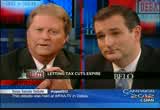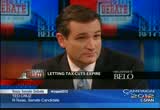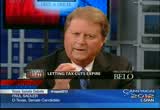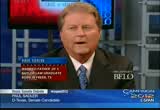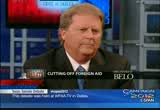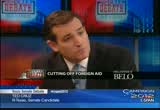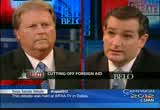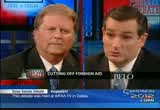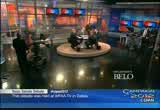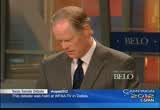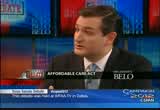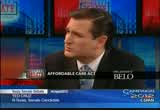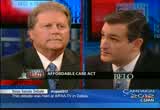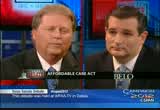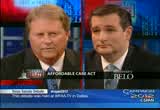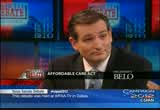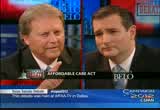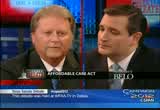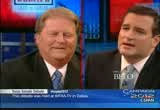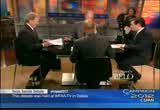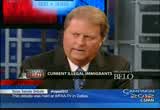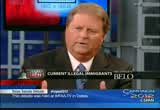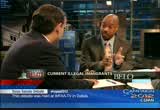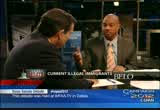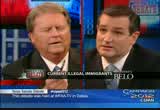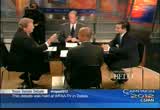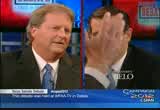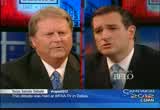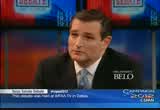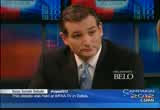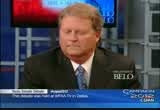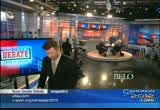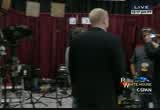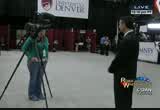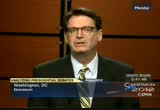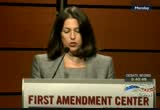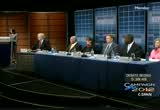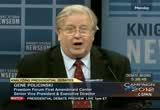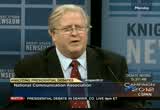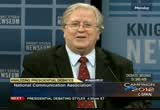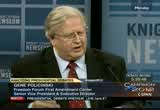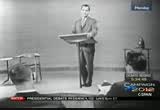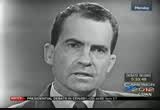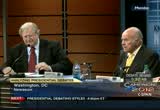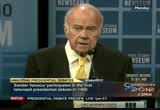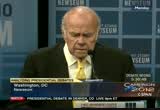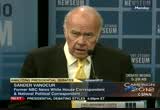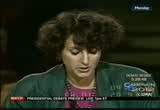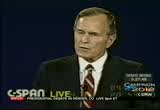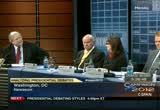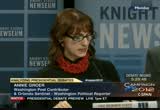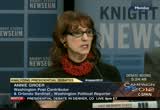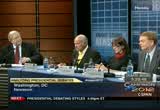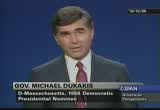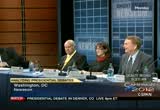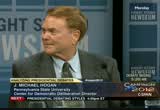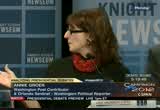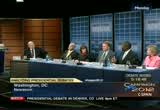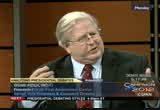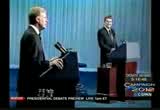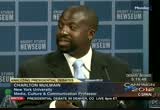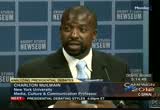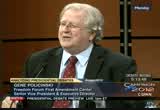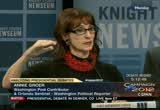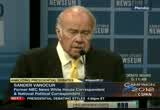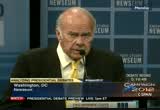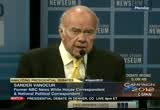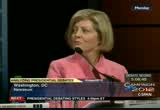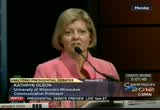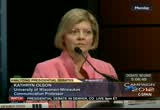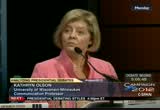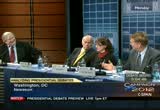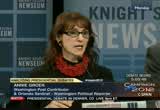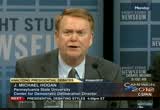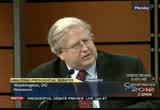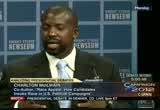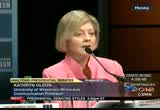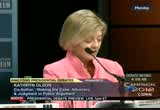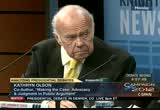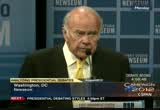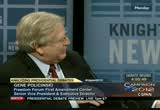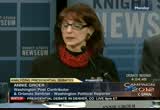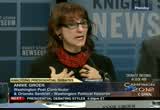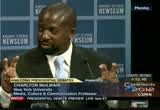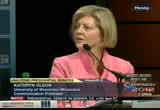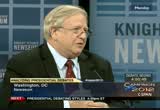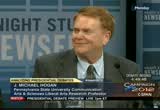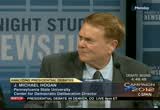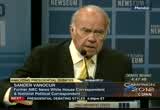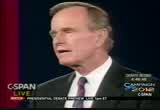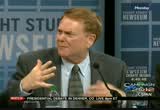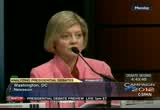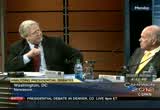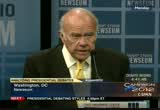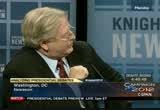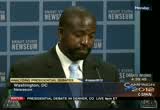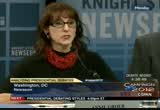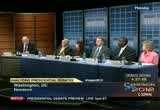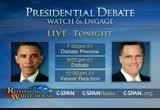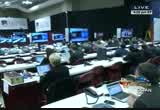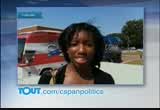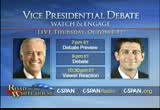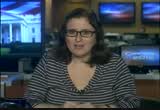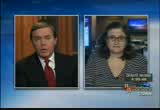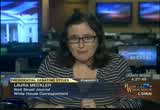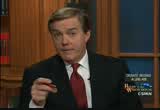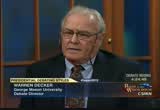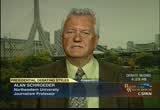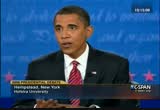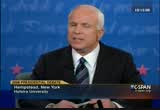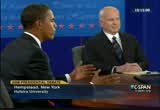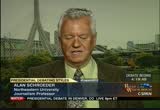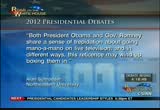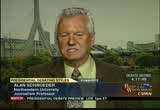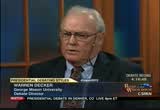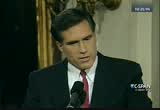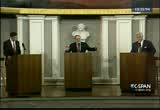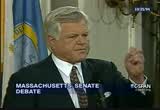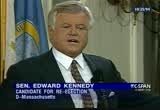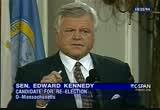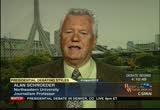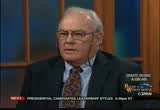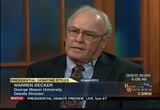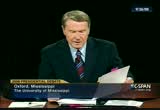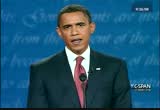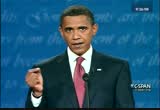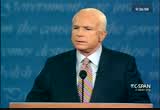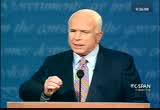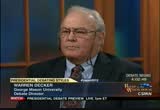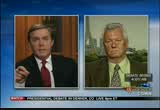tv U.S. House of Representatives CSPAN October 3, 2012 1:00pm-5:00pm EDT
1:00 pm
i must say some of these observations ayman from chinese leaders -- i learned from chinese leaders. to deal with china, it is the fundamental problem of american foreign policy right now. the difficulty is chinese history is totally different. we have been secure through most of our history from other countries, the impact of foreign societies on us. the chinese state has always been surrounded by a multiplicity of states. the management of all barriers
1:01 pm
has been a principal necessity of chinese foreign policy. we have done it on a pragmatic basis. the chinese have learned to take a longer, strategic view because one cannot decide the outcome of any issue unless you look at it in a longer-term. but these societies have two different approaches. it is an ever evolving situation. china is now rising country. we have the status quo countries
1:02 pm
similar to germany and england and therefore the likelihood is something like that might occur again. remember, china is a country that is returning to what it believes it has always been, namely the center of asian affairs. but it is inevitable that the rise in china will impinge on the united states. there are a number of things we need to keep in mind with respect to that. you can trade -- it produced a
1:03 pm
conflict that was not inherent in the situation but be that as it may with respect to germany and england, we know that none of the leaders who started world war i would have done so had they known what the world would look like four years later. they let themselves be driven into conflict on the basis of considerations in terms of the tragedy they brought about. therefore, i think the conflict between china and the united states would be a disaster for both countries and it would be impossible to describe what a
1:04 pm
victory would look like. it requires both sides patients and understanding that they're trying to reach in each country. there are domestic pressures that emphasize the disagreements that arise. we see that in our political campaign in which both candidates are using language which is deplorable. you see it in the chinese literature from their strategic centers in which there analysts are pushing a nationalistic
1:05 pm
line. there is the prospect that it becomes a substitute for it. many of the issues that arise are vestiges of a past that is overcome, that we need to overcome. it was done by a chinese emperor who had never heard of them because the concept did not exist 300 years ago. the issue of the islands, when there are hundreds of violence, it requires separating the notion of sovereignty over the
1:06 pm
island. my colleagues will be able to give it a fuller explanation. both sides have to make up their mind they are trying to do something that is unprecedented. two competing countries recognize the international system requires a degree of going tothey're not drift into a conference date -- confrontation that will damage every other country that will participate in it. each side will be able to list the mistakes the other side has made. the one favorable thing you can
1:07 pm
say about this challenge is the most non-partisan foreign-policy in america today is chinese policy. eight american in spirit -- ministrations since 1971 have pursued the same course. on two occasions, presidents try to reinvent the policy and the maximum time that lasted was two years and then they reversed it because they recognize, from experience, the necessity -- i am very hopeful this will be continued. there are many grievances on both sides.
1:08 pm
the basic objective is recognized by both sides. what we need to do now is find something on which we can genuinely cooperate. something that is done on all sides of the atlantic that in gauges the best minds of vote both sides on some common project so that we do not have to read about each other in terms of the literature we now see on both sides which describes the other one as a failing. that is our fundamental challenge. i thought that would begin by saying i was asked to speak for 15 minutes to enable you to be able to say that your present at a historic event.
1:09 pm
[laughter] but you have not been present at an historic occasion. but i want you to leave with the feeling that it is tough. there will be some situations that will clash. we americans have always had the view that we did not want any country -- that remains our view, including those of us who are great advocates of the relationship. the chinese can understand the objective that they would not wanted to to be pursued in the military framework.
1:10 pm
it is for both sides to recognize there is some occasions where we may not have the same definitions but we can cooperate and i think that peace and stability of the world depends on that. thank you very much. [applause] >> thanks to everyone for coming. thanks to all of the panelists. david lampton and cheng li. it is honor -- and honor to be here. i am melissa block and have a deep and abiding interest in china. i would like to follow up -- we will talked for a while and then there will be time for
1:11 pm
questions. i want to start with the odd fact of the heir apparent's disappearance. he missed appointments and no one knew harry was -- where he was. i can tell you at our meetings there were discussions that were worthy of abbott and costello, is she, she is missing. when? not when, either. it is cheap. where where she and how do we interpret the fact that the next apparently there of china was missing -- apparent heir of china was missing. >> my experience in china is this, traditionally, chinese media did not talk about the personal lives of their leaders.
1:12 pm
and so, if a leader got ill, nothing was reported about it. i remember when li disappeared in 1995, i think it was the spring of 1995 or the fall of 1994. and he was simply not there. there were no reports and the media about what had happened to him. it later turned out he probably had a heart attack or a stroke and the meeting i had with him a short time before he disappeared, he did not seem to be behaving normally. but this is not unprecedented for a leader to drop out of sight. in those days, people did not report on leaders and therefore they were either there or they were not. the problem now is he not only have a mass media in china with instant access to information, but china is part of a world in which leaders are accountable for where they are.
1:13 pm
i think the people who handled his absence botched it. they needed to be saying something and they were not in a position to say something and that produced a lot of speculation, including bizarre stories about coosups. he may have been with cheng li for all i know. >> before i answer that question, i want to say something. i want to say a few words to doctor kissinger. not only as a chinese-american, but as someone who -- someone who grew up in the cultural evolution. the generation of leaders will take over power in a month and a
1:14 pm
blow to -- belong to the cultural revolution. for this generation, the very name of henry kissinger and bodies wisdom, diplomacy, -- embodies wisdom, diplomacy, and hope for an open china that is integrated with the other world. hope for better u.s.-china relationships. now, the open china you and president nixon made in early 1970's, was not only a turning point in history, but also it has changed our lives, for millions of people, chinese, chinese americans, and americans. thank you very much, doctor kissinger.
1:15 pm
[applause] now, one of the things you have taught us is to better understand chinese politics, or how to develop a broader vision. we have to have a deeper understanding of chinese politics, society, behaviors, political systems. let me come to the question you raised. i am disappointed, not what the leadership, but rather disappointed with the social media. it is fair to say that the chinese government said several times in a press conference and
1:16 pm
to foreign delegates that vice- president shi was injured in his back. i think that is enough. more importantly, i was interviewed many times by the media. i say i do not want to comment. there is nothing happening. they would cancel their trip. the police and the military would react unusual. there is no sign whatsoever. it seems like it is very odd that the chinese government is
1:17 pm
not famous for transparency. they sometimes want to cover things. but also ironically because of the vulnerability that doctor kissinger mention, they face a lot of challenges. for this problem, a successor is in big trouble. they were immediately announced -- you cannot cover. it is a huge liability and would cause further damage for the political system. no leader will be able to do that. usually they will reveal to the public within 12 hours. this is my take. this should be a lesson for us. i'm not defending the chinese government. china needs to follow to be responsible. he is already paralyzed and
1:18 pm
could not come out -- i just wonder, did this come from well informed people? they should be embarrassed. >> i do think there is a serious lesson, however. aside from the management, it raises the question of, and if something were to happen to the designated successor, who has been designated for a number of years, what is the plan b? what is the constitutional process? what can people have confidence in in terms of continuity of leadership? as inaccurate as all this proves, and i tend to believe there was a minor health incident and that was the explanation. the mere fact that this can have such ramifications tells you something about the institutional ways --
1:19 pm
institutionalization of the system. about thislk more new generation of leaders coming in. what do we know about the men who are presumed to take over as premier and president? xi jinping, they are about 10 years younger then a hu jintao. he has a daughter that goes to harvard. doctor kissinger mention the cultal revolution and i think that xi jinping "eight more bitterness than most" during that time. he wants to start? >> i think the defining moment as he said in the chinese media was the cultural revolution experience. he was a teenager along with hu
1:20 pm
jintao. both of them were sent to the countryside where they worked as a farmer. the hardship to the countryside, they are very difficult. it defines the behaviors. conference, sometimes over confidence, i think it is important to know this characteristic. in many ways, they study in college after the cultural revolution. this was the most liberal era in china's educational system. they were exposed to western
1:21 pm
ideas he reads english right well. now that is a wonderful opportunity. this also could be a problem because if we fail to understand, this is a generation, because of their personal experience, they do not want the electorate. they will be more conducive with giving reasoning. you just use force to intimidate them and they will react strongly. what i said is important. that if we use force, just a single-minded lecture, we're not
1:22 pm
resonating very well. they will react strongly, the hu jintao generation. i do not know if you watch the interview. this is 15 years ago. he interviewed -- in "60 minutes." michael wallace points his finger and says you're a dictator. several times he said that. he laughed. after many years, people thought his approach was very smart. it made michael wallace embarrassed. if you do the same thing with xi jinping, it will be a disaster. we need to know this kind of mindset, this kind of
1:23 pm
experience. that is why what henry kissinger said early on this important. -- is important. it will shape their point of view and their behavior. there is tremendous room for cooperation but also dangerous. >> i think you said they experienced during the cultural revolution hard in this generation. how does this bear out in how they view domestic policies and -- in china? or is not -- that not a factor? >> we cannot really know how they will perform an office because they are not there yet. there have been instances where people, where china was being criticized and he made a sharp response.
1:24 pm
i have had several conversations with xi and found him an extraordinarily thoughtful person who raised a number of philosophical questions. the problem they face is if you look at their own reform agenda, the things they have stated they want to achieve in the next 10 years, you know china will undergo enormous changes. i think it is unlikely that in 10 years the next generation will come into office with exactly the same institutions that exist today. precisely because everybody knows that in china, there is a kind of political evolution
1:25 pm
being discussed every day. this is one reason why i do not believe that great foreign adventures or confrontations with the united states can be on the agenda. overcoming the country in which the coast is highly developed and the interior is undeveloped. you cannot keep a society operating like that indefinitely. i agree with cheng li, he felt
1:26 pm
he had to make china acceptable to foreign critics. xi would not defend that -- would not accept that. he would defend himself. but he has a long history to look back on. the meetings i have had with him, i found him to be reflective and philosophical. >> ambassador roy, let's talk about your time as ambassador. the dynamic and then compared with now in terms of how they're going into the party conference and the changeover in
1:27 pm
leadership, how would you describe what is different? >> it is very different. i arrived back in china in 1991. it was very clear there was a to struggle under way within the leadership. you could detect it in the types of terminology that was used by different leaders in talking about particular issues. it was symbolized by the fact that when he made his famous trip in the spring of 1972, the central press had no coverage of the trip and we had to learn a matter from the hong kong press and some of the south china newspapers. china, after the tiananmen events, had a conservative group
1:28 pm
of leaders to gain a strong hold on the leadership. it was not until his trip that this a conspiracy of silence was unraveled and all of a sudden there was a sharp shift six months before the party congress to reform. then at the congress, the conservative group that had consolidated its position after 1989 was ousted from the party and china went on to a strong reform and openness and resumption of those policies. we should learn town -- some things from watching us. the first thing is we were in the middle of an election campaign. bill clinton was comparing beijing to baghdad. this was at the time when china was moving from baghdad to paris.
1:29 pm
[laughter] maybe i am overstating the case, but that is what is happening. this was a dramatic shift in china and the u.s. government paid absolutely no attention to it. it had no impact on the policies of the clinton the administration when it took office. since i was the american ambassador, this confronted me with a problem of american government and had one view of china but china was already moving in a different direction and that created some contradictions in trying to carry out my instructions. this time, you have some echoes of that. clearly the bo xilai affair has shown that the political system is not that different for others. leaders have their own ambitions. some succeed and some come crashing down, as in the case of bo xilai.
1:30 pm
so we should not assume political jockeying is not taking place and this could explain why the announcement of the party congress was delayed. no longer do you have an all- powerful leader who can resolve disputes and put things in place. now the powerful, ambitious leaders have to work out their own modus vivendi and that takes time. see, cannot to confront any major surprises. >> mao could give orders. the current leaders have to operate by consensus, at least an understanding.
1:31 pm
>> david lampton, don't expect surprises from the party congress. should there be anything we should look forward to it? it is two days after the election? coincidence? should there be anything surprising that emerges from there? mike the committee be smaller tax >> we were talking about rumors earlier in the context of -- might thed committee be smaller? >> we were talking rumors earlier. probably the u.s. is on the side, a minor concern that may have affected by a day or two. but fundamentally i think this got decided out of an internal
1:32 pm
logic in china, and not looking at united states. my own personal guess is that if you look at the pool of people eligible to be the next and the commit -- standing committee, we may have some difficulty deciding which fisher going to get pulled out of the pond. it is revealing to look at the fish in the pond, the totality of what they are choosing among and what we're looking at is a more diverse group of people in terms of education, business, law, even humanity, to some extent. we are looking at a broader generations. we are looking at people, we were talking about xi. he has some enormous experience, my those leaders from all over the world visiting his city. i think we are looking at people experienced in the world.
1:33 pm
when we look back in history, i expect we will say there was a surge of reform in 1992 after tiananmen. that china was pushed into the world, wto, explosive growth. we will look at hu jintao as a time of consolidation and i look to the next group to push and tackle for the first time the political question. because china's society has changed. it has less dominant leaders. it has a more pluralized society. and has resources scattered among social organizations, corporations that have their own independent power. i think we are going to see a new push. i do not know how vigorous but in the political direction, we will have more cosmopolitan leaders compared to the past.
1:34 pm
>> for someone to rise to the top of the chinese hierarchy, would give you the confidence they would be pushing in a new direction as opposed to maintaining the status quo? >> looking at the recent history, the new generation means a new policy because they want to provide a new vision. they want to have their own legacy. i agree with my colleagues that we are not going to see a split of the party because it is united. even people who have reservations are united with him. i think a the bo xilai case is important. people have already compared it with tiananmen. some of my friends think this is
1:35 pm
the biggest crisis ever in the party's history. it is still unfolding. i just read a couple of days ago, who is that leader? doctor kissinger said it is not just bo xilai. it is mao. mao had the same thing. this is important because this reveals a serious crisis because bo xilai crisis revealed fundamental flaws. how the system could avoid this . this awful power abuse. the interesting many as compared to 1990 -- 1989 tiananmen, relatively speaking,
1:36 pm
the chinese economy has not seen disruptions like some years ago. why? 1989, now each year china has many law school students. that is faster than united states, for better or for worse. [laughter] their commercializing the media. none of them existed in 1989 in china. this provided a stabilizing force for a peaceful transition. the party needs to transform itself before it is too late. there is a serious discussion
1:37 pm
among social groups talking about legitimacy of the chinese communist party. how could it be possible? because his ambition will never stop. that is an important lesson. this is a critical moment china is experiencing at this conjunction of history. so, in a way, to answer your question, the leadership, in many ways they also sense the of the vulnerability. but it is not clear whether they will really transform the party because it is a very complicated process. there are ethnic issues. again, all of these issues will
1:38 pm
resurge, plus, the economy, slowed down. that as a result of the political problems and a further revealed the fundamental problems in the system, monopoly, corruption, etc. it is a big challenge. for the international community, we need to be sensitive. we need to understand the difficulties china is going to go through. but i am optimistic, like doctor kissinger. the society, including some of the rising stars. they understand what they should do to really change the political system and making more transparent and democratic. >> does anybody envision the kind of transformation of the party that cheng li is talking about?
1:39 pm
not at the level of the central government but the provincial level. can you see what he is talking about? the transformation he is talking about. if the communist party is to transform itself. >> first of all, all of us have seen enormous transformations in china and the last 40 years. especially since the reform movement started in the middle ages. we should not think of china as a dictatorial government. it is more similar to mexico. i think it will be more transparent, it's legal system will be more predictable.
1:40 pm
but it has a few adjustments to make. all economists say china should export less and consume more. that is partly an economic question. it is also a transformation of society and has foreign-policy implications because it depends on globalization. all i am saying is that yes, i can imagine that transformation. i think that is certain. and next 10 years will be extremely complicated. what we must not a man or expect is that they will follow the conventions with which we are most familiar. it will be a chinese version. but it will be more transparent and it will not be achieved without some domestic
1:41 pm
difficulties. we have to be sensitive to what is emerging. but it will be different from what it is now. >> is there an opportunity? >> i completely agree with doctor kissinger. stop and think about it. the communist party is out the window. it threw out the window if fundamental principle of marxism, class struggle. all this was done and most americans did not even notice it happening. people still talk about china ruled by communist party. yes, but it is not a communist party as leander's down communism in the old sense. -- as we understand communism in the old sense. it is an urgent need for a
1:42 pm
fundamental, structural political reform, fundamental economic reform, and ordered to be able to deal with the social problems generated by the rapid growth. why is the premier saying this if he does not recognize that the current system, if it does not change, is not going to be able to deal with the problems generated by country that is still open to the outside world, is growing at a destabilizing rate of growth, even with the declining rates, at the moment, and which is changing socially and in terms of income levels, in a dramatic fashion. what doctor kissinger was saying was we should anticipate change, not anticipate no change. saying when it is going to happen and what its nature will be, then you have to be able to see the future and i think with the exception of doctor kissinger, the rest of us are
1:43 pm
challenged in that area. >> david, if the goal is to anticipate the change, reuter is the role for the united states and what opportunities might there be as china continues on this path? >> on the last topic, we have the example of taiwan that had the party in charge for many years, had martial law, was a leninist party, which the soviet union helped organized. . it moved from the bottom of society to the top, incorporating more elements of society and it mitt from inside the party to enlarging the party -- it moved from inside the party to enlarging the party. i think the chinese have looked of that model and i expect to see the party change from within. its procedures and composition
1:44 pm
have already changed enormously. from 60 million to the last decade to 80 million. you even have some people at the minister level that are not even members of the party. i think you're going to get change. what can the u.s. do to facilitate its? ? we have to recognize its own momentum is enormous. china posted a natural resting place is to try to deal with its own problems and therefore i do not think we should make a -- divert attention to try to confront it in an external environment. continuing to engage, having areas of cooperation in energy, the development of a massive nuclear civil energy programs. we are already cooperating with
1:45 pm
the chinese. keep our markets open. but do not create a more hostile environment that is essential. is is important we keep a balance in the region. there is a line between balancing provocation and we want to stay on the side of balance and a constructive environment. >> i was surprised to hear you say that the comments made by both candidates, you used the term deplorable. i know you have endorsed mitt romney. have you had that conversation with him? abbey said i find your comments deplorable? -- have you said i find your comments deplorable? [laughter] >> i see these advertisements for the candidates are debating with each other on how to deal with the cheating of china. both used the word cheat. it may be that in china they do
1:46 pm
1:47 pm
campaign's making statements which i did not think were adequate to the overall relationship, and clinton did the same thing. i have confidence that when in office, and president looking at the realities will come to the conclusion that i have outlined with my colleagues in which there is little dissent among the community of people who deal with china. there are those who have other views and want to turn it into a crusade. but they have not actually studied china or dealt with china. >> we're going to do one last
1:48 pm
question before we turn it over to the audience. give me a time frame for how long before we see open, and national elections. david lampton. >> i do not expect to live to see that day. >> i disagree. i think the future generation in china will have to understand the proceedings generation -- what they went through. i believe china will be in a rapid pace for political transformation in the next 10 years. 10 years. china says i'm too pessimistic. [laughter] >> i am confident that doctor lampton will live to see it. this is reflecting doctor
1:49 pm
kissinger's optimism. i am more cautious than cheng li in terms of whether it is 10 years or 15 years, but the pattern in asia has been the countries that have been able to sustain rapid economic growth for 40 years have moved from authoritarian systems to represented a form of government, without exception in east asia. without exception. south korea, taiwan, thailand, indonesia. thailand shows you can sometimes revert back court. -- backwards. i start them in 1992. we are talking or 20 years for the process. we are already seeing the forces that want a change for a more representative form of government operating in china.
1:50 pm
it is operating within the communist party itself but sooner or later it is going to have to spell out in a broader way. this is independent of the will of china's leaders. they're generating social forces that they will either have to suppress at enormous cost or they will have to accommodate. the question is can they accommodate them under conditions of stability so they can continue growth? we do not know the answer to that question. my sense is that china's fifth generation of realized -- of leaders realize this is the challenge they will be facing. whether they carry china into the promised land, if you will, or the sixth generation leaders, i am not sure about that. i would bet more on the sixth generation. but it could happen earlier. and you cannot exclude there is the possibility it will not happen the way we are forcing it. leaders can screw up.
1:51 pm
china a's record has been pretty good at keeping the country on a positive track. >> i agree with what has been said. i think china is moving in that direction. but there is implied in some of these questions and attitude that we know the answers to all the questions and that it is our mission to make the world over in the american image. china has conducted itself for four thousand years. it is the most continuous state. they managed 3800 years without assistance from the united states. [laughter] so we should not assume that we know what the answer is.
1:52 pm
i think the direction is to more openness but we also have democratic problems. we also have a problem of how you reconcile conflicting interests. and i think we should be open for the possibility that china will develop not exactly the ones similar to ours, as a country. we have to learn that when you conduct foreign policy, you have to deal with interests as well as the use and you have to reconcile the concerns of other countries with your own concerns. otherwise it will not be possible to build a global system. that is a challenge for the united states, no matter which party is in office. >> i'm going to turn this over
1:53 pm
to questions. i think we of someone with a microphone in the audience. if you would, introduce yourself and what organization or school you are with and ask the question. if you want to direct it to someone in particular, go ahead. start on the left. >> i am with the fair observer. he talk about xi jinping as the fifth generation, most of the people are appointed. can you talk about the transfer of power? how the -- will they have new rules within the party on how the succession is going to continue? >> talking about internal dynamics within the culture of
1:54 pm
the party. >> excellent question. i think the game is changing. as the bo xilai incident is own ated by bo xilai's assessment that the previous model is coming to an end. therefore, he reached out to the public for support. maybe you could argue they could do similar things from different policy agenda. and maybe bo xilai is taking the right approach but he is the wrong person because of his behavior.
1:55 pm
i think jesse says, -- as he says, eventually the system should open up to find a new source of legitimacy. of course not immediately one- person, one-vote. this is not feasible. not only the delegates, but also 370 members vote. now this vote tendered to other members. when you -- can go through other members. when you start to do that, you
1:56 pm
change the legitimacy. you legitimize the future. but if you fail, it will cause serious problems and undermine further the political system. that is why they are hesitant. this is part of the reason of the delay. not just about the candidates of the standing committee. hu jintao did not now. that is the issue. at think you're right. -- i think you are right. the game will change. >> i see a lot of hands. let's go to the side of the room. yes. >> a former student of doctor kissinger. i wanted to ask my old professor
1:57 pm
whether he is disappointed that after 40 years of engagement from the west, we still see the hostility and suspicion on the part of the communist leaders toward the u.s.? >> i do not find hostility on the part of the chinese leaders. i read a lot of writings of chinese think tanks that express suspicion of the united states. i think it is inevitable when two great society's interact with each other from such different premises. but the pact will not be smooth
1:58 pm
and i'm sure that if this were the chinese meeting, the same question could be passed with respect to american leaders by the chinese, perhaps even more so. so i think this is a gradual process which can be overcome only by some joint effort with respect to the process and also with finding projects in which we can engage jointly, energy, the proliferation of nuclear weapons. those are issues that can only be solved on a global basis in which cooperation between united states and china is essential.
1:59 pm
i have participated, and others have participated, in many conversations that indicate it is possible to have such a dialogue and that the alternative is going to lead to results, in my view, similar to world war i in europe. >> can we get the microphone to the middle? >> i am reading doctor kissinger's book on china. i sense that one of the reasons
2:00 pm
might have been is a very close and hisns with cuyou agreement on proceeding with everything you wanted to accomplish on behalf of the total policy, that the u.s. and china were following at that time. in other words, taking care of the soviet union. but the arctic -- asking if it was a factor in his political fall from grace, especially in
2:01 pm
the current time after 1973 of having been too agreeable to the united states. it was actually based on a complete misunderstanding. on leaving china, i offered china the same sort of direct communications with the white house. the the soviet union already had. in order to prevent an accident and simply for the sake of symmetry, a proposed the same
2:02 pm
thing. it was something you do at the end of the meeting. and so there was a direct line being established to the prime minister and the prime minister had indicated he did not care. the top leaders -- enda anyway had -- and mao had misunderstood it from our point of view. we now know that mao read the
2:03 pm
transcripts of every conversation at the end of every day. and we know that the next day we would get an answer, but sometimes directed by mao. for example, i took a trip to china before nixon's trip because i thought it was too dangerous to leave things. i came within a band communique. and -- with an advanced
2:04 pm
communication. and the next day he came back with a scorching reply from mao, which i happen to think was correct, which with an advanced communication. was, if we simply publish a communique of the usual type in which everybody seemed to agree with, it did not mean anything. he came up with a proposal to address all of our disagreements. and those agreements that would mean something -- and then the listed five agreement, and in those agreements would then listemean something. he was so closely accepted, that it has never meant anything that he was fully accepted.
2:05 pm
the expectation and of its own imminent mortality and he wanted to ensure the style of his leadership. those were the principal reasons of cho en lai's demise. >> i was thinking as you were speaking that he survived under mao for a very long time in the 20's and 30's. and he ran afoul of mao early in his career and lost. and we had the basic code, don't get out ahead of the chairman. everything resonates with that
2:06 pm
background. >> cho was a mandan -- a mandarin type. >> but there were -- there was evidence, for whatever reason, that he was not in favor with mao in his last years. >> first, i want to say, i'm very glad you take part in this event. it is a privilege to meet all of these famous experts on the stage. and i raised -- and to raise my question in person. i have a question for dr. kissinger. the u.s. and china are facing transitions. i'm wondering in the currentsta. and asian rebalancing policy cannot as for the american presidential
2:07 pm
election, however the -- how likely the asian rebalancing policy will be carried out and and how about will -- and how will that affect the u.s.-china relationship? >> i am not privy to all of the actions in policy and reassessments. it is not directed at an indicator country. it was drawn from europe. and it was drawn from afghanistan. it was inevitable that some withdrawal would take place.
2:08 pm
it would. if the u.s.-china relationship work to be put largely in military terms. i do not believe that of it has been expressed very much in military terms. but the fundamental objective should be to achieve a balance in which america operates within asia importantly on the economic and social objectives and at asia is not the hegemony that we have dealt with, and i believe this is achievable and would not
2:09 pm
make be pivot to be viewed primarily in military terms. >> a follow-up question -- i am wondering how china and the u.s. should manage their relationship in napa region, given the -- their relationship in about region, given the possible impact of rebalancing bad policy. >> the ideal outcome, which will take a long time to evolve, would be to -- if the countries do not look at their relationship, primarily as balancing and the relationship develops across the pacific which is somewhat comparable to the development across the
2:10 pm
atlantic's. this would be more difficult to do in asia because the asian countries still think of each other areas rye roles, and even strategic rivals into a victory that does not exist. when great countries deal with each other, there is a balancing involved. but the balance should be sought in non-monetary terms to the greatest extent possible and should be preceded by cooperative efforts and should be seen as a gradual process through intense consultations not only about gruden since --
2:11 pm
about grievances, but objectives. democrats and republicans have attempted to do it. every administration has attempted to do this, and i'm confident that whoever wins in november will attend to do it, but that should be the objective. >> i would like to make room for one more question, if that is ok. on the right on the aisle. >> my question is for dr. kissinger. the united states, for the administration of the islands near japan in the 1970's, the
2:12 pm
united states took no issue on the -- no position on the sovereignty issue. is the secretary of state at the time cannot could you the rationale -- could you please tell as the rationale of that policy? and given the events of the past year, would you change your mind right now? >> that is a lot of question. >> by periodically go to china and i attempt to educate myself on a significant developments in china.
2:13 pm
2:14 pm
2:15 pm
he was asked you about your decisions that you made at that time. >> what i've focused on was the agreement that was made deng joiping and the japanese leaders. there was no active american involvement that i remember fulminating a conclusion which leads to japan and china. my dearest wish would be that china and japan detained a monopoly of concern on that
2:16 pm
issue. [laughter] i also want to say one thing. a lot of the questions are directed to me because i have had the dramatic experiences, but it is the people on my left here who keep the thinking on china alive, and to provide a well from which others can drop. we would not be where we are without a group of dedicated people who have kept ysabel alive and have kept studying it
2:17 pm
when it gets more and more complicated. >> we will have to leave it there. [applause] [captioning performed by national captioning institute] [captions copyright national cable satellite corp. 2012] >> people want to know who is going to win, who is going to score and who will make the biggest difference in the argument that they will make. in my view, it is not so much of winning and losing or even the people themselves. is about something bigger than that. >> and all you have heard about
2:18 pm
is this discussion about what we need to do to keep the country going. that is what people will be listening for. >> tonight, president obama and mitt romney meet in their first presidential debate. watch and engage with c-span with our live debate preview at 7:00 p.m. eastern, followed by two ways to watch the debate at 9:00 p.m. on c-span, both candidates on screen at 9:00 p.m. and following, your reactions, calls, and tweet. a follow our live coverage on c- span, c-span radio, and online at c-span.org. >> and a live look at some of what you might see if you are on hand at the site of tonight's debate. this is the area near the media tent, which is just down the street on the university of
2:19 pm
denver campus. this is where members of the press are gathered for tonight's coverage. the school is prepared for about 3000 journalists, some importers -- journalists and supporters to be on hand. president obama and governor romney have rehearsal time in the fall schedule to start at about 2:45 p.m. eastern. the debate hall has been closed all day. there has been no access at all. again, live coverage of the debate begins with a preview i 7:00 p.m. and then the policy debate getting under way at 9:00 p.m. followed by your phone calls and tweaks. the c-span campaign 2012 and was recently took a tour through virginia, visiting colleges and
2:20 pm
universities to speak with students about our programming, and to find out how students felt of their vote might influence the election. >> most of the election has to be foreign policy, because that date how we operate with other countries and how other countries perceive us. we would never want to be conceived -- perceiving a negative manner. >> the most important issue is education. i think that should be at the forefront of every campaign. >> most importantly in this election is the economy. i will be graduating this year. the economy is very important to me. and >> the most important in to consider in this political election is the foreign policy of both candidates. i feel like we live in a volatile world right now and this is going to be the major decision factor. >> that will affect my
2:21 pm
generation, the economy. what happens with the economy is going to affect us for the rest of our lives. >> and you can find out more about c-span pose a political coverage on our website. go to c-span.org/campaign2012. >> and now we go to the texas u.s. senate debate. this took place last night in dallas. it is courtesy of a local television. it is almost an hour. >> good evening at and thank you for joining us.
2:22 pm
we are live from wfaa's studios in dallas. we want to welcome viewers across the state. the two u.s. senate candidates, republican ted cruz and democrat paul sadler, are debating for the first time before the november election. it is a race to decide who will represent texans in the u.s. senate. i hope that by the end of the night to have a better idea of who you want to vote for. we will follow your comments and commentary on twitter. just use the hashtag #belodebate. we will be able to follow along. look for additional information on twitter. we will have supplemental information on each candidate on where they stand on issues. this is a very different debate. we are throwing out the rules. candidates will face each other answering tough questions. moderating tonight is wfaa's senior political reporter, brad watson. joining him is political reporter gromer jeffers. let's turn to dan. >> thank you very much. good evening. >> good to be with you. >> thank you for being with us tonight. >> should be fun.
2:23 pm
>> we are at it again. >> i would like to start tonight by framing with this race is right now for november with questions for each of you. we start with mr. sadler. you have an uphill battle. raising money has been hard. only $139,000 through july for your campaign. the democratic party has been behind you for the primary against a totally unknown candidate. democrats in texas are not totally behind you. why should independent or moderate republican voters consider you? >> do not confuse the texas democratic party with the national democratic party. the texas democratic party is very strongly behind me. it has been pretty amazing. the national party made its decision a year ago, a long time ago. i would not read too much into that aspect of it. the texan democratic party is
2:24 pm
strongly behind me. republicans and independents should support me because of my bipartisan record. i have a record of accomplishment. i work on education bills and a tax cut. that was done with the republican governor, is split between republicans and democrats in the house and senate. it was a bipartisan effort. we got it done for texas. >> your funding reports are due in two weeks? can you speak of those? >>i have been on the road. i really do not know. >> mr. sadler, a democrat has not won a statewide office in texas since 1994. do you consider this an uphill battle? >> for an open senate seat, it is always a battle, and should be, and needs to be, regardless of the party. i understand we have not elected a democrat in a long time. is about time we did. >> let's go to mr. cruz. he said the day after you beat lt. governor dewhurst, he said he would run scared for the
2:25 pm
general election. but you have agreed to this and one other televised debate. you criticized governor dewhurst for having almost 40 candidate forms up to the primary, but are you playing it safe and coasting? >> we have been crisscrossing the state of texas. our approach has been consistent for two years. we have been all over the state, literally hundreds of ihop's and vfw halls and denny's talking with voters in every part of the state. that is what we are doing between now and election day. i'm very glad to be here in this debate tonight. i am looking forward to another debate in a couple of weeks. i think it is important to present the very clear force the election faces. >> 1.4 million republicans in the primary -- you put a lot of energy into that.
2:26 pm
up to 9 million texans will vote november 6. why shouldn't they have the same energy and exposure side- by-side with you and mr. sadler as before the primary? >> we are debating here today. we will debate in a couple of weeks. in the meantime, i am on the road in a different city between just about every day between now and election day. >> but why can not we have another debate? why not the one in houston? what are you afraid of? >> i am focusing on supporting our campaign. that is what we're doing. i'm listening to the voters of texas. >> you can build the support in a debate. >> we agreed to this one. look -- i understand you are working very hard to get media coverage. >> y a -- why don't you agree to six? >>it is not our obligation to help you in that. you can go convey your message to texas voters. i am conveying mine.
2:27 pm
>> it is your obligation to face the voters of texas. >> i am doing that. >> as you said, state by tv, is -- statewide tv, is the critical point. you have had the opportunity. even for the tea party debate, which she would not do. -- you would not do. why what he faced me now? -- why won't you face me now? >> we are sitting here right now. you can launch every attack you want to right now, on television. an unscripted, moderated format -- this is unscripted. >> you will not face me six times. >> maybe you could actually respond. you are facing right now. attack me however you like. >> let's move forward and we will see if there are more debates later on. maybe you two can negotiate that. if you cut government benefits who pays for them and who
2:28 pm
receive them should be in the political landscape when -- a secretly recorded video of mitt romney at a private fund-raiser was made public -- let's take a look. >> 47% of the people -- who will vote for the president a matter what. who believe the government has responsibility to care for them. who believe they are entitled to health care and food and housing, you name it. that is an entitlement. >> texas -- in 2010, 38.5% of texans filing a return paid no income tax. there is no data on how many texans get government assistance, but the census bureau found 24% get social security. 14% had retirement income. 5% disability benefits, and 14% receive food stamps. mr. cruz, do you believe that government has a responsibility to care for them?
2:29 pm
>> of course not. i agree with mitt romney when he says his comments were poorly phrased. keefe said they were in elegantly stated. -- i think the phrase he used was that they were not elegantly stated. i think there is a difference. part of the philosophy of president obama is trying to get as many americans as possible dependent on government so that the democrats can stay in power in perpetuity. the reason i think that is failing is, even those americans, if you break down that 47%, there is a significant chunk of people, receiving social security, who have paid into it their entire life. that is very different from being dependent on welfare. that is a critical safety net our society has counted on that we need to insure remain strong for generations to come. even those who are receiving welfare right now, most americans do not want to stay dependent on government. they want to work for the american dream. they want to work to provide for themselves and their
2:30 pm
families. i think that is why the obama administration's objective is essentially using bread and circuses to make as many people as possible dependent on government, to keep voting democratic, is not succeeding. americans want to stand on their own feet. >> that is the craziest thing i ever heard of my life. you are accusing the president of united states of using a government program to manipulate people do not get a job, to be dependent on the government for services? >> i'm impressed. we are a few minutes and -- >> let me finish. >> i am impressed. we are a few minutes in and you have now three times called me crazy on observing that the president has expanded government dependency. >> you are saying he is manipulating american so they will vote democratic. >> i did not use those words.
2:31 pm
>> yes, you did. >> let's talk about the issue of benefits. in 1960, 20% -- of federal -- 26% of federal spending went to individual payments. this year, 65% of federal spending goes to individual payments. i would suggest we do have a problem with government -- >> we had a downturn in the economy. we have hard times, people looking for work and not able to find jobs. >> 65% of federal spending going to individual payments. it may not sound good, but we have created a welfare state. >> to blame it all on president obama is even worse. it started long before he became president. but even worse,to declare the president of the united states is manipulating so people will stay and vote democrat? i think that is the most ridiculous thing i have ever heard. such a cynical view of the
2:32 pm
presidency and of government. that cannot possibly reflect -- who we are at a people. >> your response? >> i think a far better approach than a dependency is removing the barrier the federal government puts in place to small businesses and allowing entrepreneurs and small businesses to drive. -- thrive. >> what barriers? >> i am very happy to discuss the various. -- the barriers. >> i wish she would. -- i wish you would. >> let him finish and make his point, then you can respond. >> what texans are looking for, and what is inherent in the east coast of texas, is that we are not looking for handouts. we're looking for the chance to the entrepreneur is, to work to achieve. i think there have been a host of regulatory policies under barack obama that has killed jobs, ranging from obamacare to dodd-frank, to the abuse and enforcement of environmental laws, the ban on the xl pipeline, the enforcement of labor laws -- those policies
2:33 pm
have killed thousands and thousands of jobs and collectively, we are making it incredibly difficult for small businesses to thrive, much less survive. >> so if you have 65% of spending going to individual payments, what would you do to try to reduce that? >> in order to create more jobs, we have to control the national debt. i think that is what we have to do. i have said it from the beginning. i have given a plan to try to deal with it. this idea that somehow mr. cruz is lecturing us on standing on our own feet, i find incredible. he spent most of your adult life working for the government. you have not created jobs. you have not on your own business. i have. my wife and i own a retail store. we did not have the federal government with their boots on our neck. when george bush was president,
2:34 pm
we lost 700,000 jobs per month. all these programs were in place at the time. the only addition is the health care act, which has not been fully implemented. i think that you have a selective memory of where we are in this country and how we got to where we currently are. >> i must say, mr. sadler may well be the only person, the only small business owner, former small-business owner in the state who does not think the regulatory and tax burden under this administration has made it harder to create jobs. i will tell you, crisscrossing the state, it does not matter, east texas, west texas, austin, dallas, houston, small-business owners say their life has become much harder with the regulatory uncertainty and burdens. two-thirds of all new jobs come from small-business. >> i am not hearing that from small business. you keep saying that, but i do
2:35 pm
not hear it. >> in response to the romney video, an obama video surfaced from 14 years ago in which he discusses market forces and competition, but also the redistribution of wealth. let's take a look. >> it is figuring out how we structure government systems that pool resources and facilitate some redistribution, because i actually believe in redistribution, at least a certain level to make sure everybody has got a shot. >> mr. sadler, do you agree with this notion of redistributing wealth from one side of americans to another site? >> i do not agree with that at all. i do not know the context, the full context of what he is saying, but that was 15 years ago. >> 14. >> 14 years ago. i do not follow that philosophy. i do not see any evidence, in spite of mr. cruz's claims, of
2:36 pm
him manipulating the public, as he suggests. >> mr. cruz, please respond -- do you believe he is saying he does not believe in redistribution? >> of course president obama believes in wealth distribution. been clear is that he supports president obama. this president has engaged in reckless fiscal policies. we have seen a national debt under president obama grow from $10 trillion to over $16 trillion. it is larger than our gross domestic product. we are galloping down the road to where greece and italy and much of europe find themselves. i cannot tell you how many texans have expressed to me one on one their concerns that we're jeopardize in the future up for our kids and grandkids if we do not get out of control federal spending under control. >> the numbers are wrong to begin with. we act redoubled our national debt under george w. bush. when you were working for him, i believe.
2:37 pm
the war in iraq and afghanistan and bush tax cuts -- we doubled our spending under george bush. we continue to add during the obama years, but had to deal with the iraq and afghanistan wars and the bush tax cuts that were never paid for. the support president obama as our commander in chief? -- and do you support president obama as our commander in chief? do you believe he is a united states citizen? do you accept the fact that he calls himself a christian? >> that was three questions. i will say, of course barack obama is our commander in chief. i wish he were a stronger commander in chief. >> to you believe in the? >> let him finish, please. you posed the question. >> i wish he were a stronger commander in chief. in recent weeks, we saw the tragedy of the assassination of -- >> let him finish.
2:38 pm
>> ok. >> they are simple questions. >> i understand you would like to put me on the cross examination stage. if you would like a -- >> i'll give you about 20 seconds, then we will move on. >> i wish she were a stronger commander in chief. in the last few weeks, we saw our ambassador to libya assassinated in an organized action by al qaeda on september 11. his response was to affectively apologize and blame it on an obscure internet video instead of standing up to terrorists. >> are you going to answer my question, or just lecture? >> i do not agree with what you said and how you described it at all. >> he asked me a question back.
2:39 pm
>> we will move on to that in a moment. the original question -- a fiscal matter regarding taxes and the redistribution of wealth. >> mr. sadler, you have indicated support in letting the bush tax cuts at all income levels expire, a position which is beyond what the president supports. >> that is not what i said. look at all of these tax cuts. in light of our national debt, we have to balance our budget, cut spending where we can, we will hope our economy continues to do well, but we will have to look at various sources to retire in national debt of $16 trillion. at the appropriate time, we have to look at every one of the bush tax cuts and figure out how they affect the economy, how to generate revenue we can dedicate to pin down national debt. that is what it will require
2:40 pm
there are obviously things we will not do. i do not think he will do the child care deduction or change the estate tax law, but i think there are levels of income and rates we have to look at. >> the question was, do you support letting all the bush tax cuts expire? i want to play video from the houston pbs forum when you are asked, do you want to do away with bush tax cuts? >> the very thing we will have to do -- we will have to let the bush tax cuts go. in order to pay down the national debt. at the end of the day, if you look at the budget, a look at the budget you get down to military and defense spending or the bush tax cuts. >> are you talking about the bush tax cuts on all income levels? >> there is no qualification in
2:41 pm
that statement. what i said, and i still stand by, there are three things that doubled on national debt -- the bush tax cuts, -- >> the question is, do you want to expire them in total? there was no qualification. >> i am getting there. i think, and i still say, that we have to look at every single one of them and determine if we can use some of that money to pay down our national debt. we can lie to the american people or tell the truth. the truth is that those tax cuts, if we let them expire, will increase our national debt by almost one-half. >> what is your position, mr. cruz?
2:42 pm
>> i would not allow the bush tax cuts to expire. i'm curious. i will commend mr. sadler. he is running a campaign with a great deal of courage because he is running an unapologetically liberal campaign and is running in support of raising taxes, a host of liberal views. i commend him for his candor in that. i do not think those are the values of most texans. i am curious, mr. sadler, which texans would you raise taxes on, and which texans would do not raise taxes on? >> do you consider it liberal to say we have to balance the budget and pay down national debt. do you think is liberal to cut spending? i think is liberal to cut taxes when you are operating a deficit, because you are spending money. >> i do not think your labels mean a lot. what i have said from the beginning -- the centerpiece of our problems is the national debt. we simply have to look at this. whether we do it this year because of the way our economy is or next year, $2.3 trillion.
2:43 pm
>> i want you to respond to this. >> i'm glad there is a clear contrast between the two of us. i do not believe we should raise taxes. i do not think the problem is that americans are not taxed enough. mr. sadler has been very candid that he would consider raising taxes on every single tax and who pays income tax is. >> that is not fair. >> if you would consider allowing all of the bush tax cuts to expire, that would raise taxes on every single tax and who pays income tax. are the texans to pay income taxes we would not raise taxes on? you did not have an answer. >> you will not put words in my mouth. i would say, the first place, we have to balance the budget, cut spending, and raise revenue to reduce the national debt. you have never given any plan to reduce the national debt. anything you even described. talk about the deficit, our current budget, but you never say how you will eliminate $16 billion of the national debt.
2:44 pm
even tom coburn, one of your heroes, from oklahoma, says we have to raise revenue. we have to cut spending. we have to balance our budget. that is not liberal, that is not conservative, it is just the truth. >> i will make a point that in that entire answer, mr. sadler did not disagree with me once that there is not a single texan who currently pays income tax that he is willing to rule out raising taxes on. i've asked to three times that question, and you have yet to give an answer. >> hold on, what about the question of revenue? he mentioned coburn -- there was a proposal of three to one tax cuts to revenues. >> i think the problem we have right now is that federal spending is out of control. the problem is not the taxes are too low. historically, tax revenues have
2:45 pm
been roughly 18% of gdp. government expenditures have been roughly 20% of gdp. with barack obama as president, those have risen to nearly 25% of gdp. that is a structural shift in the size of a government. i think the solution is to bring it back. i think that is especially true when the economy is teetering on the brink of recession. any economist worth his salt would tell you that the worst thing to do when the economy is coming out of recession and potentially going into another recession is to jack up taxes on job creators, small businesses, and yet that is precisely what my opponent is proposing? >> that is absolutely not true. we have to look at them at some point of time. you do not do this in a vacuum and not just do it in the last days of a political campaign. it is interesting to me -- if you acknowledge all of -- if we
2:46 pm
abolished all of governments and just look at the $2.30 trillion -- it would still take eight years to pay down our national debt. yet you not commit to a single program to pay down national debt. you keep saying the same stuff that we have to cut spending. if you cut everything, abolish every government department, it would take us eight years to pay down. >> we will move on to foreign policy issues. >> with respect, the premise of your statement is not accurate. i have campaigned for two years on very specific strategies to reduce the spending in government. we have to get the spending under control. your statement is not accurate. >> let me go back to the policy questions, foreign policy question about the situation recently with the north africa. american taxpayers pay billions of dollars -- it was a big issue when we saw the scenes will see in a moment in egypt and the anniversary of the 9/11 terrorist attacks. a radical islamist group attacked the u.s. embassy and
2:47 pm
tore down the american flag. in the same day, in libya, an assault on the consulate resulted in the death of the american ambassador christopher stevens and three others. these images echo the worst -- the recall those moments in 1979 with the taking of american hostages at the embassy in iran. u.s. taxpayers gave an enormous $1.6 billion to egypt, which is now run by a former member of the muslim brotherhood. should the u.s. give up foreign aid to these nations, mr. sadler? >> no. not now, we have a fledgling government being formed a. with egypt withholding funds, the editorial board agreed is time for us to stop the old on
2:48 pm
that aid. -- to stop the hold on that day. it is in our best interests to stay involved. if we do not stay involved, russia, china, and other countries with in this world will i do not think to cut off the aid. >> mr. cruz? >> this is another area of clear disagreement. we should not be funding those who are contrary to our interest. the only justification for continuing that aid or any portion of it is it to protect national security interests of the united states. we should use that aid as extensive leverage to protect national security interest. we should not be writing a blank check. look at the nation of egypt, the muslim brotherhood in power, i think that is an extraordinarily dangerous situation for us to be sending over $1 billion to them, much of it in military aid. it is a precarious situation. >> mr. sadler?
2:49 pm
do you agree with that? >> if he severed ties with egypt, you guarantee that people who are our enemies will be involved. i think it is a dangerous strategy mr. cruz is suggesting, and it violates every foreign policy we have had in recent memory. the fact is, the way we will help these countries go forward -- if we do not, our enemies will. i would much rather us be involved. >> there is one principle clear from time immemorial -- tyrants cannot respect weakness. the tragic hostage situation in iran -- this president has engaged in the wrong pattern of coddling those hostile to the united states. while shunning our allies. recently, the president was too busy to meet with prime minister of israel benjamin netanyahu but could still appear on letterman. that that could take priority
2:50 pm
over meeting a valuable ally. i disagree with i. >> do you still consider egypt and ally? >> i hope so. but i do not think we should write a blank check. saying category -- categorically cut off all foreign aid, buti think we should be using the aid as a lever point to ensure they are an ally. >> that is exactly what our foreign policy is. that is what our representatives and president have been doing. i do not know what world you are living in, but this foreign-policy has been in place for many presidents. we that support these countries and remain friendly with them, or you guarantee they go to the other side. i think it is extraordinarily reckless and dangerous -- not what you are suggesting, a position of weakness. >> let me ask you a question about a strong president. do you agree with president obama in his refusal to meet
2:51 pm
with prime minister netanyahu and his decision to go on "the view" instead. >> i think he should always meet with heads of government. i feel the government of the state of texas should meet with the president, regardless of their affiliation. that is a sign of respect. >> on that we have agreement. both of us think it was wrong for president obama to snub the prime minister of israel. >> i do not know what his schedule is. you characterized -- rhetoric about snubbing, been weak, i do not know what the situation was for the president's office, his schedule, what the israeli prime minister's schedule was. if it is possible, you should always meet with foreign heads of government you so what the -- of government. >> so what scheduling conference the think would be sufficient? he declined requests from the prime minister to meet when the prime minister was in new york.
2:52 pm
my understanding is that during that same week he went on david letterman and "the view." >> at the same time? you are using that as an excuse? >> we do not even know. you do not even know. you slander our president and do not even know his schedule. >> i am describing his conduct. >> i do not know david letterman's personal schedule or the president's, but we have come to the bottom of a half- hour. much more in the next 30 minutes. >> thank you. a spirited, sometimes fiery debate between our two than senate candidates. we appreciate them being here and appreciate hearing from you. you have been following on through the first half. use the hashtag #belodebate. what so far about the answers? what issues matter to you? have they answered your questions? let's talk about what you have to say, when we come back. more cruz versus sadler, right after this.
2:53 pm
>> the senate debate will continue in a couple of minutes. >> welcome back to, everyone, to ted cruz versus sadler. a lot of twittering going on, as the covered wide range of topics. let's get to some of them right here on the board. from david holmes -- i like this format. why won't you agree to more debates, cruz? up next, coming from joshua, sadler is already looking desperate, he may want to rethink his insistence on six debates. from houston news, remove the moderators and that these two go at it. it may be too late for that. moderators are firmly in place during their best as they hash out issues. let's go to health care and immigration. back to you. >> we are going to talk about health care right now, a huge topic in texas and around the nation. mr. cruz, we'll start with you. you have made your position on
2:54 pm
the affordable care act commonly known by -- as obamacare. >> the first bill i intend to introduce is a bill to repeal every syllable of every word of obamacare. i intend to lead the fight to get that done. there is enormous pressure to compromise -- we should repeal it in its entirety. >> under the health care so far -- 357,000 texans under 26 have coverage by joining their parents' insurance plans. 2.2 million seniors received free preventive care last year. texans on medicare have saved $223 million on drug prescription drugs. do you support taking away all these benefits that are very popular with texans? he went to take them away by trying to repeal this law? >> i believe we should repeal this law for two reasons. number one, it is designed to move us inexorably towards single-payer government-
2:55 pm
provided health care. if you look every nation on earth where socialized medicine is implemented, the result has been poor quality, waiting times, and rationing, putting government bureaucrats between patients and their doctors. the second reason it should be repealed as that i think obamacare was rammed through in a brazen display of arrogance. it was clear it was contrary to the strong views of the majority of people. it is the only major piece of social legislation of modern times to be passed on a strictly partisan vote, only by democrats, despite the fact that brokers in virginia had elected -- the voters in virginia hide rejected a democrat and elected a republican. in massachusetts, the scott brown race was effectively a referendum on obamacare. and yet this president and nancy pelosi and harry reid
2:56 pm
rammed it through. >> the question -- if you were elected, do you want these benefits that hundreds of thousands of texans now have -- do you want them taken away? >> that is not exactly right. i support as a dividend health -- a significant health care reform. >> the lot of the land is in the books. do you want to have it taken away? >> you cannot talk about half without the other half. the other half -- i think health care reform should follow if you principals. number one, it should expand competition in the marketplace. number two, it should empower patients and disempower government bureaucrats. let me give you three specific reforms -- number one, allow people to purchase health insurance across state lines. that would create a true 50- state national marketplace for health insurance. for example, talking about children under 26 being on the apparent policy.
2:57 pm
-- on their parent's policies. if we get a true national marketplace for of insurance, those parents who wanted to purchase that coverage to purchase set. we would not need the government mandating @. -- mandating it for everyone. >> if i understand this correctly, you want to repeal obamacare. these benefits would go away. do you believe that or not? >> this is a clear indication -- honestly, the idea that you would repeal the affordable care act today is absolutely the worst legislative strategy you can possibly imply to do the very things to say you want to do. it is evidence of an experience. you do not give away your leverage. right now, with the affordable care act, we have the greatest patient benefits we have seen in 75 years. they are law. we do not have to agree about them. we do not have to give anyone leverage to do that. we do not have to deal with insurance lobbyists. we are ready won.
2:58 pm
you give away closing the prescription donut hole. you will give away free screening for seniors. you'll give away pre-existing conditions. -- the exception. you give away, and children under age 26. you give away the fact that they cannot deny coverage simply because we get sick. you give away the right of women not to be treated as second-class citizens, as if they have a pre-existing condition. you would give away their right to contraceptives. you'll get all these benefits away so that you can make a political point against the president. that is not good for texas and is not good for the united states. it shows a real fundamental lack of understanding. obamacare -- yourobamacare -- ys
2:59 pm
about obamacare, you have this conspiracy theory about the president, and you did not like the process. the end result is good things for people, living, breathing people and children. do not give away our benefits so you can make a political point. >> there were a host of accusations and mr. sadler said. most of them were not true. let me make a simple point. a few minutes ago, mr. sadler talked about his passionate on reducing spending and reducing the debt. apparently that does not comeape
3:00 pm
to the over $1 trillion of expenditures obamacare represents. mr. sadler talks about giving things away -- one of the simplest things -- principles of economics is that there is no such thing as a free lunch. everything mr. sadler said he wants to give you, everything the government is giving us, it must first take from us. that is part of why the burdens on small businesses are so great. there are so many small businesses, even now, beginning to eliminate health care coverage because of these costs. >> let me ask you one question. if obama is reelected, president obama, and democrats hold on to the senate, there is no way you can repeal every syllable obamacare. what then? >> it will be very difficult if that happens. that is why it is important that we defeat barack obama that we defeat barack obama in november and that we retire harry reid in november. one of the biggest differences between my opponent and me would be the very first vote mr. sadler would cast if he were elected, which would be to vote for harry reid to be majority leader. harry reid has been the most irresponsible majority leader we have ever seen. the last three years, under his leadership, the senate has not passed a budget. >> i have to respond to this. i do not know who i would vote for majority leader, but we know who you not vote for, john cornyn. if the republicans gain control
3:01 pm
of the senate -- you have said twice, on two occasions, you would not guarantee you would support john cornyn. that is because your money comes from jim demint. if you are interested texas, how could do not support our senior senator majority leader in the abandoned the majority party if the republican party? you will not commit to him. >> mr. cruz? >> if mr. sadler suggests that as a criterion voters should use, who will stand more closely with john cornyn, that is not a complicated question. john is enthusiastically supporting me with in this campaign. he is campaigning on the road with me. >> the question is whether you would support him. >> we will try one more time. >> would you vote for john cornyn as majority leader of the senate? >> he is not running for majority leader.
3:02 pm
>> would you vote for him? >> i know you are believing you are cross-examining a witness >> just answer my question. yes or no. >> i know you are leaving -- yes or no. >> let me know when you are done. >> give me a response, what ever it is, and then will move monday to answer my question. why what you answer? >> because you keep interrupting. would you like an answer? >> tell me. >> he will give you a response. >> john cornyn is a very good man and i look forward to working very closely to represent the state of texas and conservative principles. mr. sadler -- you want to ask who john cornyn is supporting. he has been campaigning -- >> you will not answer the
3:03 pm
question. >> i look forward to working with him side-by-side. let me ask you, are you suggesting that you would not vote for a democrat as majority leader? >> i am telling you this. if i was a republican, i would vote for john cornyn. but all your money comes from jim demint and the super pac. that is his biggest competition. we all know that. you will not answer the question. >> jim demint has made it clear he is not running for leadership. what i said, i said i think it would be presumptuous for me to commit to a leadership vote until the election. you showed no hesitancy -- >> we are going to go on. until the election. they will sort out their leaders
3:04 pm
in the next session. we are tentatively going to move on to immigration. mr. sadler, stopping illegal immigration, there have been proposals like tripling the size of border patrol or building expensive fences or walls. however, there are 11.5 million illegal residents in our country today. 1.6 million in texas alone. do you support a path to citizenship for people here illegally enter yes i do. our border, a lot of texans may not know, el paso is the lears in the next session. safest city its size in america. our border is a great economic engine, a great cultural factor, and we cannot stick our head in the sand any longer. we need to secure our borders. we should do that.
3:05 pm
that is our right. we have the military to do that, right there in el paso with equipment available to do so. by that, we have surveillance techniques capable that we can utilize. the federal government should be doing it. but we have to -- we should have already passed the dream act for these children in this state who through no fault of their own are here. they have no country. all they want is the american dream. ted likes to talk about liberty, but he only wants liberty for people he agrees with. liberty for these kids means becoming a citizen. why we turned them down over and over is beyond me. we should pass the greenback. finally, we should have a worker program to identify people here. they should pay taxes. then we should have some kind of clear pathway. it does not mean the front of the line. we can make whatever requirements we want. but we cannot continue to stick our head in the sand. this is too important, too important for our state.
3:06 pm
if we do not do anything, we will have the same discussion. >> mr. cruz, do you support a path to citizenship for the 1.6 million illegal immigrants in texas? >> i do not. i commend mr. sadler for running as an unapologetic liberal. he supports amnesty for these illegals. i do not. he supports obamacare. i do not. mr. sadler has opposed second amendment rights. i fight for second amendment rights. >> what does that have to do with? >> mr. sadler has championed on income tax and the state of texas. i oppose that. there is a sharp difference. it gives texans a clear choice between what is right -- the right direction. >> so what would you do for the illegal immigrants here? do you see that as a problem?
3:07 pm
>> the texas home-building and restaurant industries are sensitive to that. >> immigration should have a staged approach. we have to get serious about security and stopping illegal immigration. i do not think either party has been serious about immigration. both parties have demagogued on it, but they have used it to rally their base rather than rolling up their sleeves in solving the problem. we need to remain a nation that does not as welcome, but celebrates our immigrants. over 50 years ago, my father came as an immigrant when he was 18, not speaking english, working as a dishwasher. >> i want to know, again, what would you do it for the illegal immigrants already here? mitt romney says self-deport during the primary. do you agree with that?
3:08 pm
>> i think the first thing we need to do is secure the borders, fix the problem. but i said it is a staged approach. this second step related to that is put in place a strong verifying system so employers will face sanctions for hiring people illegally. if we secure the borders, that is how we solve that problem. >> you tell so many lies, it is unbelievable. you have accusations against me that are unbelievable. do you hunt? when i say about the second amendment stuff -- >> is it true or false you voted against our concealed carry? >> i support the second
3:09 pm
amendment? >> true or false. >> i can engage in the same process you did. did you vote against our concealed carry act? >> i do not want my grandmother who carries a pistol to be a felon. >> that is a sharp difference. i got the freedom fund award for supporting the second amendment. >> he wants to talk all night, but the fact of the matter is that i am a big second amendment supporter. i have four boys who hunt. i hunt. i have defended the second amendment. you did not answer my question if you even hunt. >> we are trying to get a response to the question of illegal immigrants. >> he went into a lecture about his father -- >> you made your point. >> the second amendment, all kinds of stuff. it is not my point -- it is in
3:10 pm
response to what he said. >> let him finish. >> do you disagree? >> i have stated my position on immigration and on the border. you have the worst policy for the border of anyone running for the united states senate. we have a culturally diverse state. we have to resolve these issues so we can move forward as a state. you are sticking your head in the sand, about amnesty and things like that -- that does not help the situation. that does not help our border region. we have over $1 billion of legitimate commerce traded across the border every single day. yet you are scaring the daylights out of our border communities because of your policy. you even disagree with your wife, who served on a committee of the north american union of mexico, the united states, and canada.
3:11 pm
>> i am sorry, mr. sadler, that you feel obliged to attack my wife. >> i am not attacking her. you disagree with her. >> i think that is unfortunate you are willing to go there. >> i am not attacking her. it is a document that she worked on with condoleezza rice. >> you are talking over each other. silence, please. i will let you respond, then we will begin to wrap up. begin. >> my broader point -- there is a sharp difference between mr. sadler and me. his policies, whether supporting gay marriage, supporting an income tax in the state of texas, and mr. sadler used to routinely introduce himself as being the guy who supports income-tax. >> you said i introduced myself
3:12 pm
around the state as a person who supports income tax. that is an absolute lie. >> no, it is not. >> yes it is. >> i never supported an income tax. i had the responsibility of looking at the tax system of texas, something you would not know anything about because you have never served in a legislature. this was to pay for our children's education. i had to look at every single tax available, a sales-tax and income-tax, you name it. that is something the lieutenant governor of the time said was our responsibility. you would not know anything about it. what you do not do is do your job as a legislator, worried problems will come along later, to try to run a campaign. >> i do not blame you. there is nothing else to suggest that. i am sorry, mr. sadler, i think you lied.
3:13 pm
i am sorry you want to attack me personally. i do not intend to reciprocate. there's a sharp policy different between the policies you have advocated and are advocating. i also think -- >> if you will stop him in a reasonable time -- >> we only have two minutes left ear. we will try to wrap up. mr. cruz, if you are successful, you will be the junior senator for texas. as i have said before, there is a chance that by then obama will be reelected any chance the democrats will maintain control of the senate. given the fact that you said earlier that you do not like to compromise, how can you be
3:14 pm
effective in that landscape? >> the premise of your question is not exactly right. i never said i do not like to compromise. i said my philosophy is the same as reagan's -- if they offer you half a loaf, you take it. i am happy to compromise with everyone. i would compromise if they are solving the problem. if they are shrinking spending and shrinking the debt. if god forbid barack obama is reelected and harry reid remains majority leader, i will fight every day to defend texas and free-market principles. i think there's a very real possibility that the obama administration will go directly after fracking, which is opening enormous oil and gas resources. >> mr. sadler, you will join a most republican delegation from texas. how can you be effective or most of the members disagree with your policies? >> i do not in most of them
3:15 pm
would disagree with my policies. i've the history of bipartisanship. it is a record of honor and distinction. i was named by your newspaper one of six best legislators. every single law was passed in a bipartisan manner, with a republican governor, republican senate, democratic house. that is the value of my record. when you are looking at these two candidates, this is a person who has never been elected to anything. i have a record you can look at. bipartisan record that you can look at. >> this election is a clear choice between the obama democrats, more spending, more control, and going back to our founding freedoms. >> we need to get out of here. thank you as always. >> thank you and thank you to both candidates. we want to leave you with a final note -- early voting
3:16 pm
begins oct. 22. the election is november 6. that does it for the belo debate from victory park in dallas. have a good night, everybody. [captioning performed by national captioning institute] [captions copyright national cable satellite corp. 2012] >> live coverage of tonight's debate with our preview program and getting underway at 7:00 p.m. eastern. the debate begins at 9:00 p.m. eastern. it will be a 90-minute debate based on domestic policies. your reaction starting at 10:30 p.m. eastern. you are looking now at the university of denver, where the debate will take place tonight, 90 minutes as i said. it will start in just under six hours. we understand, here in all in the rich center, where the debate will take place, both the president and mr. romney have
3:17 pm
scheduled rehearsal times. the hall itself has been closed to cameras all day, no media is permitted in the rehearsals. right now, this is the spin room, where hundreds of the press are setting up their own studios. we also learn from the white house that the president would get the first question tonight, two minutes to respond, and in terms of who is invited to night, students from the university of denver, a member of guests invited by the campaign will be invited and independent. -- in attendance. once again, it all starts with our preview program at 7:00, the debate beginning at 9:00,
3:18 pm
focusing on domestic policy. earlier this week, journalists and political communications scholars discuss the upcoming presidential debates and ask the citizens to judge candidates on their grasp of issues and the qualities they want in a leader. this was held by the national communications association, took place here at the newseum in washington. this is about one hour and a half. >> it is my distinct pleasure to welcome you here today in our knight studio at the newseum for a very important program that we call beyond wins and losses, a citizen's guide to the 2012
3:19 pm
presidential debate. we are pleased to partner with the national communications association. we think it will be helpful to you and the public out large. we think it will be very helpful to the public and beyond. a very helpful partnership we have developed with regard to our own outreach initiatives. it is very much a part of the mission here in the museum, and we believe those of you who visit will get a civic education does walking through the halls. a citizen's guide to the 2012 presidential debate. we are pleased to partner with the nationalwe're very pleased f
3:20 pm
this program. i will turn it over to you. >> good afternoon. think you for joining us today. my name is nancy kid, executive director of the national communications association. and on behalf of our almost 8000 members i am pleased to welcome you to our discussion. i would especially like to thank the first amendment studio center for welding -- welcoming us. given the various ways in which communication scholarship can be useful to our citizenry from interpersonal relationship to political engagement, one of the core components of the national communications association mission is to facilitate the dissemination of disciplinary scholarship to a public audience. there are a few activitieswe'ree important to the welfare of our nation than informed of voting, and we hope this event will serve a concept in the vital practice. it is my pleasure to introduce you to our senior moderator. mr. paul kosinski. he is a veteran journalist. co-author of the weekly national column and said the first amendment. his first presidential campaign assignment was george wallace.
3:21 pm
as he campaigned in the midwest in 1968. a founding editor of usa today, washington editor when it began in 1982. toof panelists and a member of gubernatorial and senatorial debate. we're so glad he is guiding our discussion today, and i hope you will join me in welcoming him. [applause] >> thank you. toin, we're very pleased partner with the national communications association to sponsor this. after years of campaigning, caucuses across the nation, 27 republican primary debates that began in may 2011, here we are. today's before the first of three president of the bids and one vice presidential meeting. the first debate between the democratic and republican candidates takes place wednesday at 9:00 eastern time.
3:22 pm
the debate will be of the university of denver featuring the president barack obama and the challenger mitt romney. this happens every four years. we enter the final hours before the state -- before the debate. we later put them into perspective that we're going to try to do that. there is the rest of news reports over the weekend and this morning telling us how vital the debates are. we're here to offer a thought today on really helping all of us citizens on how to watch these debates and how to evaluate to start off with. the analysis may be the only certain thing we know about the debates of this point. we hope to go further than that. and assist you watching today in the studio, watching on c- span and live streaming to develop tips and tools to watch
3:23 pm
the debates. television debates began in 1960 with john f. kennedy facing vice-president nixon. the next debates were not until 1976. a commission was set up to run the debates. a town hall format was introduced in 1992, which will be the format for the second debate. that will take place october 16. the final debate returns to the moderator and candidates on october 22 at lynn university of florida. on the panel today to discuss going beyond winning and losing, and we will move from my immediate left, correspondent of the new york times, abc news and nbc news and participant in the first televised debate in 1960 in chicago, sander vanocur.
3:24 pm
andy grower, "washington post" contributing writer. michael hogan. charlton mcilwain. an author and network commentator and social professor of media, culture, and communication and new york university. kathryn olson, univ. of wisconsin milwaukee and director of the schools frederick program. thank you all for being with us today. we will begin the program today with a bit of advice for those of you here in the studio and those of you watching for following this on twitter. when we go to questions, there are two microphones and hope you will come down to those. if you are following us on twitter, and you have a
3:25 pm
question, we have ncadebatess12. we will try to field questions from there as well as in the studio. let's watch a clip from the moment u.s. the question of the outset. -- you asked at the outset. >> mr. vice president, this is a question of executive leadership and a very important campaign issue, our like to follow this question. republican campaign slogans say it is experience that counts. implying you have had more governmental executive decision opponent. president eisenhower has asked to give one example of a major idea of yours that he adopted. his reply was "if you give me a week, i might think of one. i did not remember."
3:26 pm
that was a month ago and he has not brought it up cents. i am wondering if you could clarify, the one put out by republican campaign leaders or the one put out by president eisenhower? >> i would suggest that if you know the president, that is probably a prestigious remark. as far is his statement is concerned, i think it would be improper for the president to disclose instances in which members have made official statements to him that he is accepted or rejected. the president has always maintained, and very properly so, he is entitled to get what advice he wants from cabinets and other advisers without disclosing that to anybody, including the congress. i can only say this. through the years i have sat on the national security council. i have been in the cabinet. i have met with the legislative leaders. i have met with the president
3:27 pm
when he made a great decision with regard to levitan and other matters. the president has asked for my advice, and i have given it. -- i met with the president when he made a great decision with regards to lebanon and other matters. the president only makes the decision. all his advisers do is to give counsel when he asked for it. as far as what experience counts and whether that is experience that counts, that is not for me to say. i can only say my experience is there for the people to consider. >> the world has changed a great deal since you and other correspondents based candidates in terms of how journalism and candidates approached the campaign. but you ask the question again and that way? again in that way? >> i would because it was passed and a great way. it was asked by charles mohr.
3:28 pm
it was a legitimate question. >> it was a legitimate question, because that was the line on the part of the republican party and richard nixon. and though my colleague from cbs and is referred to there has asked, i did not feel richard nixon did a complete answer. he referred to me as a non- essential question or some words of that effect.
3:29 pm
he did not answer it well. it stuck with him. it was the party he was confused of not having the confidence of president -- of president eisenhower, because of a great way that is what the republican line was, experience that counts. >> you were free to pursue that question, right? >> no vetting of questions. i heard about the debate the day before when i was covering nixon and the south. i got on the train that went to chicago, and went in on the following monday to go wbbm cbs affiliate in chicago.
3:30 pm
we sat in a row, and all we did was introduce ourselves to the camera. our producer went on to produce "60 minutes." that was it. >> in that clip richard nixon looks very confident and gave you a long answer. clearly anticipated some part of this. what we remember was the recollection that he was sweating heavily, nervous and prepare. you were in the room in that particular format. what did you see from your seat? >> i was in the room. i saw kennedy in a dark suit. i learned later he got make up at the last minute. i saw nixon in a gray suit in front of a great background.
3:31 pm
from time to time in the debate i did not see excess of sweat. i saw little, tiny beads of sweat from time to time. there were old friends when they were in the house of representatives. they were cordial to reach other. i just think, and this is subjective. those who watched on television thought kennedy had won. >> let's move on to a little bit later debate. the comeback of the fixture and our political campaign. there is a commission to set up the debate. let's watch the clip from 1998. >> over the years you have expressed several positions while opposing nearly all forms of government payment for it.
3:32 pm
if abortion were to become illegal again, the you think the women who defy the law and have them anyway, as they did before it was ok by the supreme court and the doctors who perform them should go to jail? >> i have not sorted out the penalties, but i do know why it opposed to abortion. i favor adoption. if we can get this law changed, where we can get everyone to take the kids better sometimes unwanted and aborted, take them and put them in a family that will be loved. my position has evolved.
3:33 pm
it is continuing to evolve. it is evolving in favor of life. i have had a couple of exceptions i support. rape,, the life of the mother. sometimes people feel uncomfortable talking about this, but it is much clearer for me now. i've seen abortion used sometimes as a birth control device. the millions of the killings accumulate. this is one where you can have an honest difference of opinion. we certainly do. now i am for the sanctity of life. >> from your experience asking that question in that debate and serving on the panel uncovering debate subsequently, how do the rules and realities of these debates impact or to some degree in have been getting a full exchange between the candidates and with the voters? >> for starters, we were told we could have follow-up questions.
3:34 pm
the way it works is the vice president gave his answer. michael would question and he would answer the question. for me to stop as you would naturally in an interview and say to whoever you were interviewing, could we go back? you know, you have had 15 years to sort this out, so would you please answer the question? it would have been a little more polite than that. he ducked the question, and it goes on today, because as we saw on the and this republican primary debate season, at some point john king from cnn was asking each of the candidates to please describe the one area in which each of them is most misunderstood, and when the question came to mitt romney, he basically said you get to ask questions you want, and i get to give the answers i want.
3:35 pm
we're seeing a lot of that now. it does not matter what the panel has asked of the candidates, but under this format the canada it will tell you what ever he or she wants to say and what ever point to have made at this time. we sometimes sit there like props. the debate system was described by a man from abc to is trying to promote union-style debates with the candidates go after each other as a job interview with the moderator is basically the guy from h.r. or woman from a charge during the interviewing. i think this debate, the debate wednesday night has a different format. it is 90 minutes on one topic. my debate was 45 minutes on domestic corn policy.
3:36 pm
we ran long on domestic. and that is what we started with. i am told jim bakker was backstage yelling and up of this, let's move to form policy, because that was perceived as bush's strength. the idea you will have 90 minutes on wednesday on domestic policy only is a huge improvement. you have a moderator who could actually step in and get them to move off the loop, if you will. >> i think it will be an interesting moment because we are seeing international questions raised, the handling of affairs in benghazi. it will be interesting to watch the moderator from cbs. >> the most important foreign- policy debate between nixon and kennedy were islands off the main island of china.
3:37 pm
those of us on the panel, we thought there were possibly an oriental dance team. [laughter] >> you heard it here. >> let's take a look at another clip from 1988. >> governor, it kiddy were raped and murdered, would you favor an irrevocable death penalty for the killer? peacoat know, i do not. i think you know i oppose the death penalty during all of my life. i do not see any evidence it is a deterrent. i think there are better and more effective ways to deal with violent crime. we have done so in my own state, and one of the reasons why we have had the biggest drop in crime of any industrial state
3:38 pm
in america and the lowest murder rates. we have work to do in this nation. we have work to do to buy the real war not a phony war. we have much to do to step up the war. >> some say that these debates are not really debates, but joint press conferences. the answer was seen somewhat determining the outcome of the election, but what they use it to people who say candidates respond with a sound bite rather than a real answer. >> this is an example where the canada it is changing the subject and were sympathetic to him.
3:39 pm
he had good reason to do it. this is an awful question. it is not just tasteless, but gotcha journalism. it does not inform the public in any way. he is on record having opposed the death penalty his entire career. he can say in that case i would change my position. then the headline is he is the foot locker. instead the answers i would stick to my position on this. then the headline is he is the passionless flirt. as it was. we will get back to that, as i think is the way to go. i do not blame him for changing the subject. >> there was the criticism of
3:40 pm
responding in a policy fashion by either being outraged were responding in a personal matter. from our rhetorical standpoint of what to do when faced with the question, what should one do? >> that is the third option, and that is to criticize the question as newt gingrich did very effectively in the republican primaries when asked about marital problems. >> it could have said i would kill the son of a -- [laughter] >> one of the purposes of the debate was to actually try to learn something about the candidate you do not already know. what we argue about him is vacation reading included swedish land use planning. i agree absolutely with sandy.
3:41 pm
i would have wanted to kill him, but we are a nation of laws. he apparently had a brother that was killed in an automotive accident and another relative who was mugged. as of was that question was and of prepared as he was, that is the nature of the presidency. things will happen for which you are not prepared, and i thought it may have been an unfair glimpse, but it was also telling, and i defend the question. >> what does the canada do when a question like that is posed the comes out of left field? it does reach to sometimes the heart of your character or personality? >> i think he did the right thing. there was no pause. there was no interruption. he went straight to the main point of the argument, which is i oppose the death penalty.
3:42 pm
even under the circumstances. that it drove off from there. this really speaks to what the public expects. >> i think what he probably should have done is answer the question on two levels. one would be my personal reaction would be horrible, i want to kill the person, but we are a nation of laws. i think what people were looking for was a telling sign of what kind of leader he would be, and did not connect with us as someone who feels the same way or with this and that that you and i would feel. i would suggest you try to split the question and say how he would personally feel, but how is policy stanford made the same for good reason. >> when we look at voters trying to claim from the un televised moments, they are unlike the
3:43 pm
studio where you sit down and settle down and unrestrained from what you see the box. the debate moderators, non- verbal cues, the way canada told themselves and react are all parts of the evaluation process of what goes on. we have a clip from 1980. i would like you to pursue the question of what people should watch for and how they should react. >> president reagan began campaigning around the nation against medicare. now we have an opportunity to move towards a national health insurance. with the emphasis on prevention of disease. emphasis on outpatient care, not in patient care. holding down the hospital care for those that are ill.
3:44 pm
emphasis on catastrophic health insurance so that of a family is threatened with being wiped out economically because of a very high medical bills, insurance would help pay for it. these are the kind of elements of a national health insurance important to the people. gov. reagan typically is against such a proposal. >> here we go again. what i oppose medicare, there was another piece of legislation before the congress. i happen to favor the other piece of legislation and thought it would be better for the senior citizens to provide care that was better than the one that actually passed. you see president reagan smiling while carter is giving that answer. the second thing it does is you are already casting doubt on what is being said. so viewers are already doubted what is coming out of his mouth
3:45 pm
as he is saying it. that of course you have the actual line that we all remember, there you go again to disarm the level of argument. in the age would image matters, and for better or worse, what we see and how the candidates comport themselves mean something and tells us something, one of the things i am really looking for in this debate is how these candidates, across when they face off with their own attacks, which have been frequent throughout the campaign. when they are on stage facing each other, what mitt romney stand there and say obama you are friends of freeloaders. will he say obama romney you are a serial tax evader. we have someone like reagan the comes off with a good line and response. we have an outgoer who is huffing and sighing. it is a good part of being able to tell who the candidates are and reacting under pressure.
3:46 pm
which one looks more presidential in terms of the facts and information and so forth. >> george bush looking at his watch as one of my favorites. >> maybe we have all become attuned to this. i do not know if we're just more comfortable with media and those being personal habits. if you watch the opening of the debate, and john kennedy was asked the first question. the format was after the introduction by howard k. smith, the correspondents turned on swivel chairs to introduce themselves. the first question goes to john kennedy. he predicts he is supposed to go to the podium.
3:47 pm
he begins to answer. he leans over and touches him on the shoulder. he gets up and goes to the podium. it is absolutely and mentioned in any of the coverage of the debates. it was seen as he forgot to go to the podium. >> do we pay more attention to those inside its today, and why? >> optics that the television viewing audience sees are so very different than what you have seen inside the debate hall. for example, during the bush debate, he is short. much shorter than george bush. under the red carpeting, his people insisted that there be a little cramped so that he would look not like queen elizabeth in front of the lectern, but almost as tall as the vice
3:48 pm
president. you see in the carter/reagan clip, jimmy carter does not look like he is left in a number of days. i've read the other day that the reagan people, after they did run through of the stage and how it was set up, there was a clear that would make re did not look good either. they measured of blue mat to cut the flare from overhead lights so that reagan will look really good. >> this was a campaign that paid attention to every single detail, and it worked. >> i do not know who said this, but the observation of a particle changes the nature of the particle.
3:49 pm
it is very rare for someone to look good on television, unless there is massive preparation. i think now the television is with us 24 hours a day. there are no longer any two news cycles, it is 24 hours a day. it is very difficult for politicians or anyone else to look absolutely perfect, because the television camera is neutral. it shows good, bad, and indifferent. >> are we more expecting that sort of examination or revelation of the personal ticks and peccadilloes? there were times we help candidates up to a special level. have we leveled to the field?
3:50 pm
>> of course we are, because there is no mystery to it. television was introduced from england. the great writer at the new yorkers that television would now become the chautauqua of the air, referring to the strip of land in northeast new york near lake erie where great debates took place. now, television did not come into politics really until 1948, the first convention. in 1952 the story goes that the colonel in chicago who work for their daily -- worked for mayor daily went and turned around and saw the man who turned out to be the producer and ask, the people will watch this? he replied, i think about 48 million. was,el harvey's reaction we can never allow that.
3:51 pm
[laughter] >> i think that captures a great, which is to say many of us hope to see more, but i think we expect far less, because we know from experience now what happens, and we know by and large, if neither canada does anything outrageous, then attention goes to the small things that they have to talk about for the next 24 hours or the next remainder of the election. >> are we entering an era in which the rhetorical measurements of did you lose or did you win? would you say that might be the circumstance in which candidates are, winning is nice but not losing is the thing. >> that could be the floor there looking at. for obama this year in particular.
3:52 pm
>> the gap is the headline. very much so. >> question for all of you before we move to another clip that we have going to our point of how to move beyond winning and losing. wondering what would be the most important thing for me to look at what i am watching the debate? the debate is open, what should i look at in the beginning? >> my perspective would be the most important thing you want to look for is democratic leadership. how does this person perform democratic leadership? we have a set of conflicting expectations that the president the democratic or ordinary, someone we can relate to and would react like we would.
3:53 pm
someone who will subordinate himself or herself to the public will and be responsive servant. someone democratic and with the people, but also somewhat leaderly, someone who could take charge of public problems. those things have to come in a very delicate balance. that is often what kids overstepped. that is something i look at. you could think of times when it has been overstepped in one way or the other. george w. bush looking at his watch in the town hall format was seen to be a violation of the democratic connection. he looked like he had someplace better to be there reporting to citizens. he did not seem to connect with people.
3:54 pm
someone brought up al gore in 2000. on the other hand we have had canada to overdo it on the leadership side a good example was 1976 when gerald ford claimed there was not soviet domination of eastern europe, something that got spun in the next news cycle so it became important. he did not seem like he had ideas good enough to be a leader. most recently, john mccain seemed to moffett on the leadership side before he even got to the debate by being willing to or suggesting the debate be canceled or postponed so they could stay in washington and work on the bailout project. that made him look unleaderly and did not seem to be able to handle multiple problems at once. for me, and i think this will be important this particular
3:55 pm
year, our candidates, office of problems. no one doubts obama can relate to the people, that he is likable and can balance or do the democratic party. what we're wondering is what is the leader of the park since we have a four-year pattern that did not make as much change as we had hoped. mitt romney of course is known as take charge ceo leader, but his big challenge will be showing he is democratic, and like the rest of us -- >> democratic with leaderly. >> he has to overcome that. challenging for both. >> you can arm wrestle. you are closer to the microphone. >> i think one of the issues this year because it was one of the few growth industries in the united states, the legion of
3:56 pm
fact checkers will be held each candidate chews through his version of the truth and what the other candidate said. i think the promise of the new format does allow the two of them to mix it up. the question is, how do they call each other on what is being called truthiness? i spoke yesterday to the man who will moderate the last debate, which is foreign policy. i said what is your role of one or the other kid did it says something that is not true? he said if it is outrageous, i will step in. but in fact, it was designed to let each other a sale each other on know, that it's not the case. at the very least, it willat the
3:57 pm
for a pretty good tv watching. one hopes they did not go too far afield in representing their own were their opponent's record. >> this year has been a bonanza for the fact checkers. i would say if the candidates did not tell so many factually inaccurate things, they could put them out of business. i was reminded of the ford incident in 1976. the fact is overnight polls did not show the public was aware he had made this horrendous this statement. it was only after a week of the press incessantly talking about the incident that the polls turned around and people decided yet lost the debate. what i'd like to do -- we have a debate watch event on campus, and we bring 200-300 students in to watch the debate, and then we turn it off so they can make
3:58 pm
their own minds up about the debate and not listen to the spin doctors and rely upon them to form their opinions. >> all i remember from the first debate, and there were only two candidates, not three, was that throughout the entire debate, or so it seemed to be watching with my naked eyes not through tv, but it seemed to me whenever nixon said, kennedy just looked at him and smirked. this played into kennedy's hands, because he did have the indian side on nixon. nixon came from of poor family. he was clumsy, and he was defending and the administration that he was napoli in support of. the eisenhower administration. -- not wholy in support of, the eisenhower administration. >> what i want to see is maybe
3:59 pm
nothing. maybe for the first time i will turn the tv on and listen and see what can be cleaned by trying to focus on what is actually being said, instead of what is being seen, which is something i know i would focus on. >> the legions of c-span network executives clutching their chest right now. [laughter] stand by them and offer some smelling salts. that goes to the point that people heard it on radio and television. you would listen for? >> listening for things that are set to the police said and then can go back and verify after, to listen for claims for arguments i can go back and say is this something that is real?
4:00 pm
credible? then look out for other information that you verify these or defeats this. >> there have been at least two sets of studies in the communication discipline that go back and look for evidence of that of you were/listener discrepancy in the nixon/kennedy era. what the first one found in 1987, they went back to see what actual evidence there was behind the repeated and repeated claim that nixon won the election on radio and kennedy want it if you were watching it on tv.
4:01 pm
what they found is there was no good imperial evidence. gallup polls and big poles lumped together viewers and listeners so there was no way to tell. the only thing they could come up with for three rather anecdotal sources of evidence. one was from a reporter that worked for the atlanta constitution." -- "the atlantic constitution." there was no check on sample prize into they were committed to before the debate. they point out in the same issue, the atlanta constitution printed on the editorial page a survey that included only 15 people. the second source is for someone who wrote for the new york herald tribune. the problem with that one was that may so was covering the southern governors' conference
4:02 pm
that year. it was a hot springs, ark.. they did not get the tv feed until later. he was with the governors and listen to them. they felt that nixon wanted listening on radio. whether there were watching on tv or listening on radio, they probably would have thought nixon won. the actual survey was the last one. it had real problems in terms of the size and composition of the radio sample. that is not to say listeners and
4:03 pm
viewers did not have different prescience, we just did not have a good evidence that they did. in looking back, the story has changed over time. they went back and looked at the newspaper reports in 1960 of the impressions, and many of them were much more similar to what sampler talked about. they looked at how they perform as leaders. -- were much more similar to what sandler talked about. not simply who was having the right color suit on. then they traced the story through newspaper reports later. there is a 16 year gap between 1960 and 1976. no debates with the story gets picked up. it will get strain down over time. in 1976 there is still substantial memory of what happened in 1960. i am not sure of their published a 2008 yet, but it has become a very simplistic lesson that i think we would be wise to be cautious of. to go what has influenced us greatly is back in 1960, we had a morning news cycle ended evening news cycle and nothing in between. now you have not just for
4:04 pm
television, but also through computers and so forth. a 24 hour per day news cycle. in the 24 hour news cycle, you have to fill the sound and the air. i call it the electronic tape form. [laughter] it has to be set constantly. try to remember whether it is a candidate or commentator whoever it utters the words, i do not know. >> when i was watching cable coverage of the trial in which there had been the announcement just before they went live, and it opened the program by saying this development has just happened, we've had a quick discussion. we're not sure what it means. they then went on for 30 minutes
4:05 pm
to discuss it, which i thought was an interesting moment. you do raise an interesting point in the difference of coverage. i am curious from each of you, while the debate is going on, there is now this interactive process that was possible. it did not exist -- i guess it was there in eight, but certainly in for. -- certainly in four. today we will be tweeting and blogging. is that a good idea to have the discussion as the debate goes on? i am curious from the journalistic point of view and communications and rhetoric standpoint. >> what is interesting about the ability to put out in cyberspace your opinion of what is going on is the campaigns are very hip to this. they have legions of people who
4:06 pm
are basically campaign tweeters. when and romney spoke at the republican convention, there were thousands of gop people just tweeting almost as she spoke of paragraph. really do not know how reliable that is. i always recommend that when people watched the debate, they watch it not just with those that think as they do democrats should not just in a room with democrats. i really think they should watch it with their opponents, because what is most telling to me is not what the spin doctors say, but if you sit around with people of an opposing party, they will just say, did he just say that? it will not just be your bias,
4:07 pm
because you work for obama or mitt romney, but someone who was a supporter of there's saying he should not have done that were great point. -- or great point. >> i could not agree more. that is why we do the debate watches. we did the students to come in. they have a discussion afterwards. we turn off the spin doctors, and i would be suspicious of what i saw on twitter or facebook for the reasons you said. the campaigns are have to that. -- are hip to that. >> importantly, in many ways you have divided attention. i will say that i will admit to tweeting and facebooking during events and you are not listening to the entire speech
4:08 pm
and picking up the detailed and nuances that may be there. >> i agree with that. the thing i would say is we're not want to change that, but the question is how do you think about it? if you think about it as an opportunity to hold the leader's publicly accountable, then you think of it in a different way. we have come into the age of the debates being a job interview. interestingly in this type of reality tv, people do not want such and spin doctors anymore.
4:09 pm
they want to want a decision about who gets kicked off the island. there is something good to say about public engagement when it comes to the increasing ways we can discuss the debates with each other. >> do you recall anyone saying after ronald reagan said there you go again that whether that was spontaneous, programmed. you only knew it was devastating, and probably forgot what he was talking about when he said it. >> that seems an appropriate time to remind everyone about the way to answer this. we will be going to those in a moment. hashtag ncadebates12. there will forward the questions for us up here, and we will ask for those of you that want to ask a question here in the studio.
4:10 pm
we have been sitting in the viewer's chair to some degree. let's put ourselves behind the podium. we will talk about the format. we have the town hall in the middle of the three presidential debates. how important is that formats? what format would you prefer? if it is one of the tools we're going to have this year or a third one? let's go through the panel and say format is a form. which one do you think in which one do you prefer? let's start with the metal. -- the middle. >> i never answer the original
4:11 pm
question, so i could probably do that here about this not bigger real debate. there are things many of you do not know about the 1958 debate team that was the national championship debate team. correct. >> i do not know. [laughter] >> the answer might be it is debatable. -- might be debatable. >> i am not sure we would want a real debate. intercollegiate debate today is a very hyper competitive kind of activity. the top 160 words per minute. i do not think we want that. it is about winning and losing. the other model stamp -- the other model people sometimes talk about is lincoln douglas. they think that is the kind of format we want. that is a three hour debate on a single issue about the extension of slavery into the territories with these long half hour and hour and a half rebuttal type things. i do not think we have the
4:12 pm
tolerance for that. we have to come up with something different. if we are stuck with a joint television appearance, i think early panel is created a situation where there was some showboating by young journalists try to make a name for themselves by asking the question that produced the big headline out of the debate. >> did any of you hear about the two party platform committee hearings? >> i remember once i said to david brinkley in the republican platform committee there was a move to raise the speed limit through the northwestern states.
4:13 pm
it was turned down because one man said hell, what used to be for me at 2 bottled beer is now a full case of beer. [laughter] >> long drive. >> i just want to finish that thought about the format. the town hall debate, it produced sometimes a rather inarticulate question, but it does -- i think that debate reflected the interest of the voters. >> let's take a look at that. >> i think the national debt affects everybody. obviously. it has a lot to do with interest rates. >> you are saying you personally? >> has it affected you personally? >> i am sure it has. >> how? >> i want my grandchildren to be able to afford an education. are you suggesting that if
4:14 pm
someone has means that the national debt does not affect them? >> help me with the question. ] >> i know people that are not able to pay the mortgage on their home, their car payment. i have personal problems with the national debt, but how has it affected you? if you have no experience with it, how can you help us? >> i think she means more of the recession problems. >> you should be the white house for the day and see what i see and read the mail that i agreed. i was in the lomax eme church. >> i just -- we missed the question. the question was, how has the national debt affected you personally? to clarify the bad economy.
4:15 pm
he did not get it. clinton ate it up. [laughter] >> sitting here as a journalist, i am struck by two things. one, the moderator is doing a lot of interpretation. there seems to be a very genuine moment with a man who i remember as very controlled and calm. really rising to wait a minute. that is an interesting line. you should be the white house. that is a very human moment. does this format show for good or bad these types of things? >> interestingly, i think it is a mitt romney problem today. if someone said you have a number of homes and your wife drives a couple of cadillacs and your money is offshore, how
4:16 pm
do you feel my pain? i think there will not be this kind of surprise on his face when this comes at a town hall meeting, but again, any kind of window we get, even into their thought process sees when they are confronted with an articulated left-field questions really does help us understand who they are. as bill clinton just goes over there and does that i lock on this woman. she is only person in the universe. >> he never asks her, do you feel my pain? [laughter] >> i do not think we wanted to go there. >> i am sure you want to follow that. to go i agree with mike that we are moving in the right direction. -- >> i agree with mike we are living in the right direction. to have the town hall where you get questions that may be a bit unusual, but for candidates have to answer them and look at
4:17 pm
the public. there's a possibility to follow up. not necessarily the case when you have the panel together. >> the other aspect is the 90 minute blocks of time. >> i would agree both of the formats, the town hall and the first of last debates, and the thing that facilitates greater action i think is significant and productive. >> the journalism profession seems to be coming out of the shorter end. no floor reporters. only ones able to ask questions. would you favor that format?
4:18 pm
>> i do not know, because it is the world's second oldest profession. >> look, i just think journalism, mass media, television and in particular has intruded just too deeply into our society. i remember i did a project for the museum in that national on the post-war congress and the media. in my dear departed friend of more than 35 years, pat moynihan, was one of the people on the program.
4:19 pm
politics is what we need more of. and we need less smart thing on television from politicians. -- barfing on television from politicians. >> i invite you did come to the panel if you have questions. very quickly, given the theme of things that we want to advise, some tips to watch. in 30-45 second sound bites, what is the most important element or factor that a
4:20 pm
citizen should way when they watch these debates? we will move through the panel and we will start with you. start with you. what is the most important factor to look for? >> being able to make a judgment about which candidate has a much greater grasp on the information. the facts, what are they? are they truthful and honest? citizens would do well to listen carefully and listen for particular things to verify it and find more information about to make that judgment about which of these candidates really have that grasp on the information that is relevant to the election.
4:21 pm
>> you ought to look for that balance between the democratic leadership that ties into leadership and may go into attitude and not just for the moment. who is the person that makes some relative judgments and pull them against the standard of what do we want and a leader. that is the opportunity that i think we have >> as a citizen, to be prepared, do little homework about the issues. you don't have to take whatever it is. you go in there as an informed water and without sounding like a show for the elite of women voters, make sure if you are not going to be around to get an
4:22 pm
absentee ballot. it matters. >> i am reminded of my fellow communications scholar's appearance on dan rather after 1988 and she said, who won the debate? i think that as a bad question. we should be asking, what did you learn from the debates? how did you hear anything beyond the sound bites in a speech modules that you have heard on the campaign trail and the ads? >> there is only one thing you can do. all you can say is i wish i had said that. we will go to questions first from twitter and the audience. given the 2012 moderator's are white, has the commission on presidential debates and format
4:23 pm
become obsolete? think it has become obsolete, but perhaps a little slow and behind the times. i think that the absence of persons of color of the debate moderator's is much more of a signal about journalism in many ways and the status of who is given credibility by their placement on those things. in that way, there is something to be said for the commission being behind in paying attention to that very descriptive kind of representation and what it might mean. >> president obama and governor romney debate tonight. the focus is on domestic policy. coverage begins at 7:00 eastern with a preview of the debate. we follow it with your reaction, phone calls, e-mail, heads
4:24 pm
tweets. looking at the university of denver, this is the media center were journalists will write their stories. president obama and governor romney will hold practice sessions today. this is only the first of three debates for the candidates and by agreement, it will focus on the economy and other domestic issues. president obama in getting the first question and mr. romney the last word. this is the media center at the
4:25 pm
university of denver where you see journalists getting ready. you'll go to the virginia colleges and universities to see what students are saying about our programming. >> governor romney has never been my position before or in my socioeconomic status and he doesn't have the same problems and issues that i do. he can't voice my concerns properly. hodgman governor romney has a lot of experience in business that can help the economy get back on track and his conservative values can take america back. >> i will vote for governor johnson because he will reduce the debt and preserve our civil rights and respect the constitution. >> i am supporting president obama because he is doing a good job and he deserves another term so he can experiences policies
4:26 pm
coming into fruition. that has been full of broken promises so i will be voting for governor romney. >> i will be supporting jerry johnson for president because he is the only candidate that will focus on the constitution, stay out of the made wars. at the end of the war on drugs. >> live coverage tonight from the presidential debate. the debates starting at 9:00 p.m. eastern time. at the next debate between the presidential candidates on tuesday the sixteenth where they will take audience questions in new york city. in the final debate, the questions will focus on that the bay. will have live coverage online at c-span.org.
4:27 pm
>> we need to tackle our nation's challenges before they tackle us. we need to strengthen medicare and social security. we're putting ideas on the table headed to that. we are not trying to scare seniors, we are trying to save seniors. >> they have laid out clearly, they have said they have endangered medicare and stole money from medicare and they have done in india have seen that adds a be here everything they say. nothing could be further from the truth. >> congressman paul riot and vice-president joe biden will face often their only debate. moderating from danville, kentucky, you can watch and engage with the live debate preview followed by the debate at 9:00. with your reactions and calls
4:28 pm
and e-mail. >> we took a look at the debating styles at northeastern university journalism professor alan schroeder and the university of debate director warren decker. this hourlong program begins with an update from the white house correspondent. >> laura meckler, as we look at the first of three presidential debates, this one taking place on the campus of the university of denver, this has been the debate season of expectation by the obama and romney campaigns. what has happened? >> the expectations are being set on two different levels. you have the obama and romney campaigns talking about how great the other guy is. the people in the obama camp cannot stop praising mitt
4:29 pm
romney. they do not like him in any other way. they think he is a brilliant debater. same on romney's side. they talk about how obama is a debate champion. and how he has set the standard. what they are trying to do is lower expectations for their own performance and talk about their own flaws a bit and raise expectations for the other guy hoping that we will judge the debate itself with that in mind. there is another set of expectations. how important are these debates? you have the romney campaign in a position where they need a game-changing moment. then you have the obama campaign saying this is just another moment for us to have another conversation with the american people. that is a downplaying of the expectations. >> you have been reporting about the separation is taking place for months, most notably when mitt romney was down during the democratic convention.
4:30 pm
who is helping mitt romney and who is helping president obama? >> mitt romney is being held by a bunch of people. you have senator robb portman playing the role of barack obama. it is his job to get under romney's scan the way they expect obama to get under romney's skin. on the obama side, you have two white house veterans who are running the debate prep for president obama. you have senator john kerry, who has been there himself. >> what happens during these mock debates? >> they do not talk a lot about what happens during these. what they try to do is try to set a situation that is as realistic as possible for the actual debate. they do it at the same time and
4:31 pm
night the debate will take place. they set up a set just like it will look like in denver. they are used the environment. they have somebody to play the moderator and ask questions. obama does not like sound bites. they force him to give answers. they do whatever they can to simulate the debate situation. >> you quote a former chief of staff to vice-presidents al gore and joe biden. let me read some of his points --
4:32 pm
can you elaborate? >> sure. he is not really specifically using this advice for romney or obama, although i have no doubt many of these tips are being passed on to president obama. it is interesting. that was my first short summary of what he has to say. he went into more depth about each one of those things. impressions of the debate are formed very early. in the first half hour. a lot of the reporters will be writing their stories in the first half hour. you need to come out strong. if there is something you want to say, you have to say it right away.
4:33 pm
you suggest candidates, when they come out to the stage, write down three points they want to make. when you are watching the debates, you see that. talking points in response to any sort of question. the idea of do not debated moderator is do not say, he got more time, i need more time. those things may be true but it doesn't look good. >> are those moments magnified in a nationally televised presidential debate? >> i think everything is. that is the issue. whatever you say, it is such a small moment. the president checking his watch. it looks like he had somewhere else to be. it did not come off well. any small moment can be easily magnified, significant or not.
4:34 pm
>> many people refer to the 1960 debate between richard nixon and john kennedy as the first impression that each candidate made to the voters. in 2000, same thing between al gore. the split screen showing him signing to the responses of george w. bush. >> one of the things both campaigns talk about is this is a possible advantage for governor romney because there is an elevated factor for him. he is on the same stage as the president. these debates to make an impression. sometimes they have a lasting impression. often, they do not. it is an opportunity, one of the few moments in the campaign, the conventions are another, but
4:35 pm
this is the last opportunity that both candidates have to speak to such a large audience at once. >> laura meckler, thank you for being with us. we have warren decker. joining us from boston, a professor alan schroeder. he has 50 years of high risk tv. what makes a good debate and a good debater? >> i think the difference between a really good debate from my standpoint, intercollegiate debate, and debates we see at the presidential level is that a really good debate would be characterized by some depth of clash and arguments back and forth between the two. a lot of that is missing from presidential debate. the testing of ideas comes from that clash. without that clash, i think the debates to not serve quite the punch.
4:36 pm
in presidential debates, the primary function they serve is to fill in the blanks in between, give the challenger and opportunity to be on the same stage, as laura was indicating. they serve a valuable function. comparing them to the types of debates at the collegiate level is unfair, i think. >> alan schroeder, you called this a high risk television. why? >> it is a television show more than a traditional debate. a debate is the word we have used. back in 1961 they were doing the first one, the networks did not want to use the word debate because they thought it was misleading. they wanted to call it a discussion. it is high-risk because it is one moment during the campaign were the candidates are in a situation that they do not have
4:37 pm
100% control over. they have control over their own performance but not what the other person will do. it is a juxtaposition of the choreographed and the spontaneous. that is what makes this so interesting. >> we have pulled together a couple moments from past debates as they campaign for presidency in previous years. you want to begin with october 15, 2008. here is part of the 2008 debate. >> the conversation i had with joe the plumber, what i said to him was, five years ago when you were not in a position to buy your business, you knew. what i want to do is make sure the plumber, the nurse, the firefighter, the teacher, the young entrepreneur who does not have money, i want to give them a tax break now. that requires us to make important choices. not only to 98% of small
4:38 pm
businesses make less than $250,000, but i also want to give them additional tax breaks because they are the drivers of the economy. they produce the most jobs. >> you know what senator obama and adopt in a conversation with joe. we need to spread the wealth around. we will take it joe's money, give it to president obama, and let him spread it around. i want joe the plumber to spread it around. i want small businesses, that would receive an increase in their taxes right now. why would you want to increase anybody's taxes right now? why would you want to do that? when we have such a tough time. the small business people are going to create jobs unless you
4:39 pm
take the money from them and spread the wealth around. i will not do that in my administration. >> if i could answer the question. number one, i want to cut taxes for 95% of americans. it is true that my current supporter warren could afford to pay a little more in taxes in order to give additional tax cuts to joe the plumber before he was at the point where he could make to hundred $50,000. exxon mobil made $12 billion record profits over the last several quarters. they can afford to pay a little more so ordinary families who are trying to figure out how they will afford food, save for their kids' college educations, they need a break. nobody likes taxes. i would prefer none of us have to pay taxes, including myself.
4:40 pm
ultimately, we have to pay for the investments that make this economy strong. >> let's not raise everybody's taxes. the fact is, businesses and america today are paying second highest tax rate of anywhere in the world. our tax rates for business in america is 35%. ireland, and 11%. where are the company's going to go where they can create jobs and where they can do best in business? we need to cut the business tax rate in america. we need to encourage business. of all times america, we need to cut people's taxes. encourage business, create jobs. not spread the wealth around. >> professor alan schroeder, you watched that exchange. what is your take away? >> a couple of things. you get a sense of how relentlessly message to john mccain is. he used the term spread the
4:41 pm
wealth of around three times. another thing that strikes me is how obama is making eye contact with became the entire time he is talking. he looks right at them. there was a lot of discussion from the earlier debates in 2008 that mccain was having a hard time making eye contact. it came off as rude. another thing that jumps out on me is the contrast of the youthful obama and a much more senior mccain. obama actually was more the adult in my opinion in that relationship in that he was very calm and cool under fire. mccain, although that last debate was his best, he had moments where he was a little erratic and some of those earlier debates. >> you said, both president obama and governor romney share a sense of trepidation about going mano-a-mano on live television.
4:42 pm
how may it went up boxing them in? >> neither one of them has and enjoyment of debating. that is a weird word to use. i think the ones who are really good at it and the ones who really come across of the people who get up on that stage and cannot wait to be there and are eager to make their case. bill clinton was like that. ronald reagan was like that. these two are not like that. for them, this is more, please do not let me do anything wrong, than, what can i do right? as was discussed earlier, he needs a dramatic moment to shift the momentum. if he is intimidated by the experience or feeling boxed in, he is less likely to do that. for obama, it is more a question for maintaining his lead.
4:43 pm
he does not want to do anything right now that reverses the trajectory he is on. i would expect he is a little timid as well. >> if you look at past debates, one dealing with policy, the moment with gerald ford, the other is more style, where obama made a joke about his age. how much is policy and how much a style in these debates? >> i think probably my judgment would be a lot of it is stylistic. it is the way they come across to the voters. it is not necessarily as much what they are saying as how they are saying it. every once in awhile, it is really more of a case of glitch avoidance. that has a lot to do with their handlers. responding and reminding them
4:44 pm
that the one thing they want to avoid is making any huge mistakes. i think probably, going back to the question in terms of style over substance, that what we would prefer in some ways to hear a lot about, detailed explanations about how each person is going to handle the economy, for example, that ultimately, given the times than they have, style is going to be a huge part of it. >> we looked for a couple of examples of mitt romney campaigning in a general election debate. here is one exchange between mitt romney and senator kennedy. >> it was determined by a toss of the coin that mr. romney would pose the first question to senator kennedy. >> my impression has been you have followed a campaign as soon as the primary was over of
4:45 pm
trying to divert the voter's attention from the issues at hand and instead making personal attacks on me as unfounded. they are characterized as untrue, unfair, and sleazy. 12 are women in my firm. you are wrong. he said we would give no benefits to americans. we have 40,000 employees in firms i am associated with to give health-care benefits appeared only part-time do not have health care benefits. that happens to be the same as your firm. a strike as you criticize me for. you know they were strikers of a company we were not investigated in -- invested in. you parade that are around as if it is my problem. i am a fan of the minimum wage. when will this end? [applause]
4:46 pm
>> i would have thought mr. romney would avast me what i was going to do for working families in massachusetts, how we would get our economy on the road, expressing differences, talking about the real measures that were going to affect children. i will provide all the documents and you asked for. i hope you tell me where you provide health insurance for your companies overseas. finally, let me say this. it was set well yesterday. he is a distinguished former senator of united states. let's talk about health care, education, training, new jobs,
4:47 pm
infrastructure, our different visions for massachusetts. that is what the people of massachusetts want to talk about. that is what i think they want to hear about. >> i want to know why you spend millions of dollars showing advertisements of strikers and the company i had nothing to do with, talking about staples, one of the finest companies in the state of massachusetts that employs 1200 people here. why you spend millions of dollars doing that is beyond me if you are so innocent in talking about the issues. that is all i have talked about up until one week ago when we revealed from an article in one of the boston papers something about your blind trust that appeared not to be so blind. [laughter] [applause] >> i will provide those in detail. about the minimum wage.
4:48 pm
you had a different opinion when you were talking on national television. i will talk about why you would meet with the strikers with that flim flam deal of yours. i am bothered by the pain of massachusetts. you may be frustrated, but your pain in this advertisement and my pain in your advertisement pales in comparison to what is happening in this city, where people cannot get jobs. if you take a great deal of satisfaction about exchanging papers about this, i would say this about your advertisement, about the washington investment, my nephew and i have blind trusts. we have no control over those
4:49 pm
trusts. we conform with the ethics committees. mr. romney, the kennedys are not in public service to make money. we have paid too high price in our commitment to the public services. >> alan schroeder, a lot to look at in that debate back and forth between mitt romney and ted kennedy. both are talking points. >> absolutely. romney, it is kind of interesting. there is something he is doing very well as something he is doing wrong. the thing he is doing well is he is not the least bit intimidated by the stature of senator kennedy. he is getting as good as he gets. there is not a hint of nervousness. on the other hand, what seems to have him exercised in this clip is that he personally was being attacked in those ads. that is what has upset. kennedy turns that around and
4:50 pm
says, wait a minute, why did he not ask me something about the needs of the voters? it is a bunch of me, me, me. something that jumps out at me is kennedy has that line of what you told your fund-raisers and what you said on national television, which is exactly the issue that got him in trouble with the tape of the 47%. >> you pointed out you never want to give your opponent an opening. did that happen in that exchange? >> i think what really happened in that exchange between the two of them is that kennedy was able to shift his answer he was giving back to the ground he wanted. he really did not give a direct answer to what romney was saying. romney was fairly forceful in making the points he was making. kennedy did not really respond
4:51 pm
to those until the very last part of his answers. i think it is also pretty interesting that one of the things kennedy did was to remind people of the high price the kennedys had paid for their service, which was a pretty decent emotional appeal in some ways. it is reminiscent of one of the comments he made at the end of his televised speech after the incidents where he used that history to his favor. i think he did a good job of diffusing the attacks of romney. it is kind of dangers in a political debate to go on the attack too much. particularly in a presidential debate, where the incumbent kind of has the high ground and
4:52 pm
the challenger is the person who really has to bring that fight to them. i think it is a difficult situation. >> it was about a week and a half after the financial meltdown in wall street in which stocks plummeted because of what happened because of the leading banks. the first debate is taking place on september 28. we want to show the moderator of the debate on the campus of university of denver this year. he is questioning about what happened on wall street and how he would react. >> let me begin with something that was said in the 1952 presidential campaign. "we must achieved both security and solvency. the foundation of military
4:53 pm
strength is economic strength." with that in mind, the first lead question. gentleman, at this very moment tonight, and where do you stand on a financial recovery plan? >> thank you very much. thank you to the commission and the university for hosting us tonight. i cannot think of a more important time to talk about the future of the country. we are at a defining moment in our history. our nation is involved in two wars. we are going to the worst financial crisis since the great depression. although we have heard a lot about wall street, those of you on main street have been struggling for a while. you recognize this could have an impact on all sectors of the economy. you are wondering how it will effect my job, my house, my retirement savings, to send my children to college. we have to move swiftly and wisely.
4:54 pm
i put forward a series of proposals to make sure we protect taxpayers as we engage in this important effort. we have to make sure we have oversight over the whole process. $700 billion is a lot of money. number two, we have to make sure taxpayers, when they are putting their money at risk, have the possibility of getting that money back and gains if the market and when the market returns. number three, we have to make sure none of that money is going to pad ceo bank accounts. number four, we have to make sure we are helping homeowners. we have to recognize this is the final verdict on eight years supported by senator mccain. that we can tread regulations
4:55 pm
and consumer protections and give more to the most and somehow prosperity will trickle down theory it has not worked. i think the fundamentals of the economy has to be measured by whether or not the middle class is getting a fair shake. that is why i am running for president. that is what i hope we will talk about tonight. >> thank you. thank you to everybody. i have a sad note tonight. senator kennedy is in the hospital. he is a dearly beloved friend to all of us. our thoughts and prayers go out. i also want to thank the university of mississippi for hosting us tonight. i have been not feeling too great about a lot of things lately. so have a lot of americans facing challenges. i am feeling better tonight, and i will tell you why. we are here tonight at this debate, and we are seeing for
4:56 pm
the first time in a long time republicans and democrats together sitting down, trying to work out a solution to this fiscal crisis we are in. have no doubt about the magnitude of this crisis. we are talking about main street and people who will lose their jobs and credits and homes. the point is we are finally seeing republicans and democrats sitting down and negotiating together. this package has transparency in it. it has to have options for loans to failing businesses rather than the government taking over those loans. it has to have a package with a number of other essential
4:57 pm
elements to it. >> george mason university. that was the first question focusing on the financial meltdown. the response by senator obama and senator mccain. >> i think the question indicated that he had done a certain amount of research and set the question up well. i think it was probably the most important question that was on people's mind at that time. i think obama's response to it was extremely good. it was detailed, it had a lot of information in it, and it explained pretty much the failure as he perceived it of the trickle-down economics we
4:58 pm
have been experiencing over those last eight years. the response, i thought mccain could have perhaps responded a little bit more directly to the individual points obama was making. his more generic response was not quite as effective as it could have been. i think overall, in that particular exchange, i probably would have scored the one for obama. the whole thing was more characterized by a lot more of an uplifting kind of answer. here is what we can do about this. i think the mccain response was a little bit more, this is a sobering moment and we have a lot of problems, but not a lot of solutions coming out of the answer that i heard. >> alan schroeder, the difference is we will have a sitting president debating governor mitt romney. is it different when it is a sitting president or whether it was george w. bush or ronald
4:59 pm
reagan or bill clinton? do they approached these debates differently or do the american people view it differently when you have a sitting president? >> i think so, yes. one of the things that happens is the incumbent is at somewhat of a disadvantage being placed on an equal footing as the challenger, as we talked about before. incumbents have typically had a very rough time in the first debate. i am thinking back to jimmy carter in 1980. ronald reagan in 1984. george h. w. bush in '92. all of these guys who had been in the presidency, they got on that debate stage and came face- to-face with the challenger. it is rattling. they all had a very difficult time getting through the first debate. in each case, they had to up their game as the series went forward. >> you say, "the morning after >> you say, "the morning after the debate, will the media the
531 Views
IN COLLECTIONS
CSPAN Television Archive
Television Archive  Television Archive News Search Service
Television Archive News Search Service 
Uploaded by TV Archive on

 Live Music Archive
Live Music Archive Librivox Free Audio
Librivox Free Audio Metropolitan Museum
Metropolitan Museum Cleveland Museum of Art
Cleveland Museum of Art Internet Arcade
Internet Arcade Console Living Room
Console Living Room Books to Borrow
Books to Borrow Open Library
Open Library TV News
TV News Understanding 9/11
Understanding 9/11